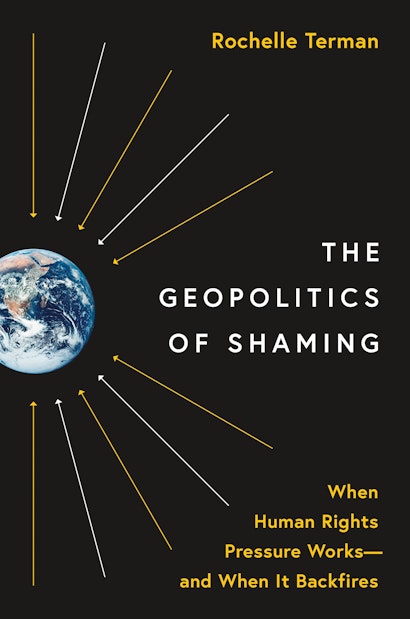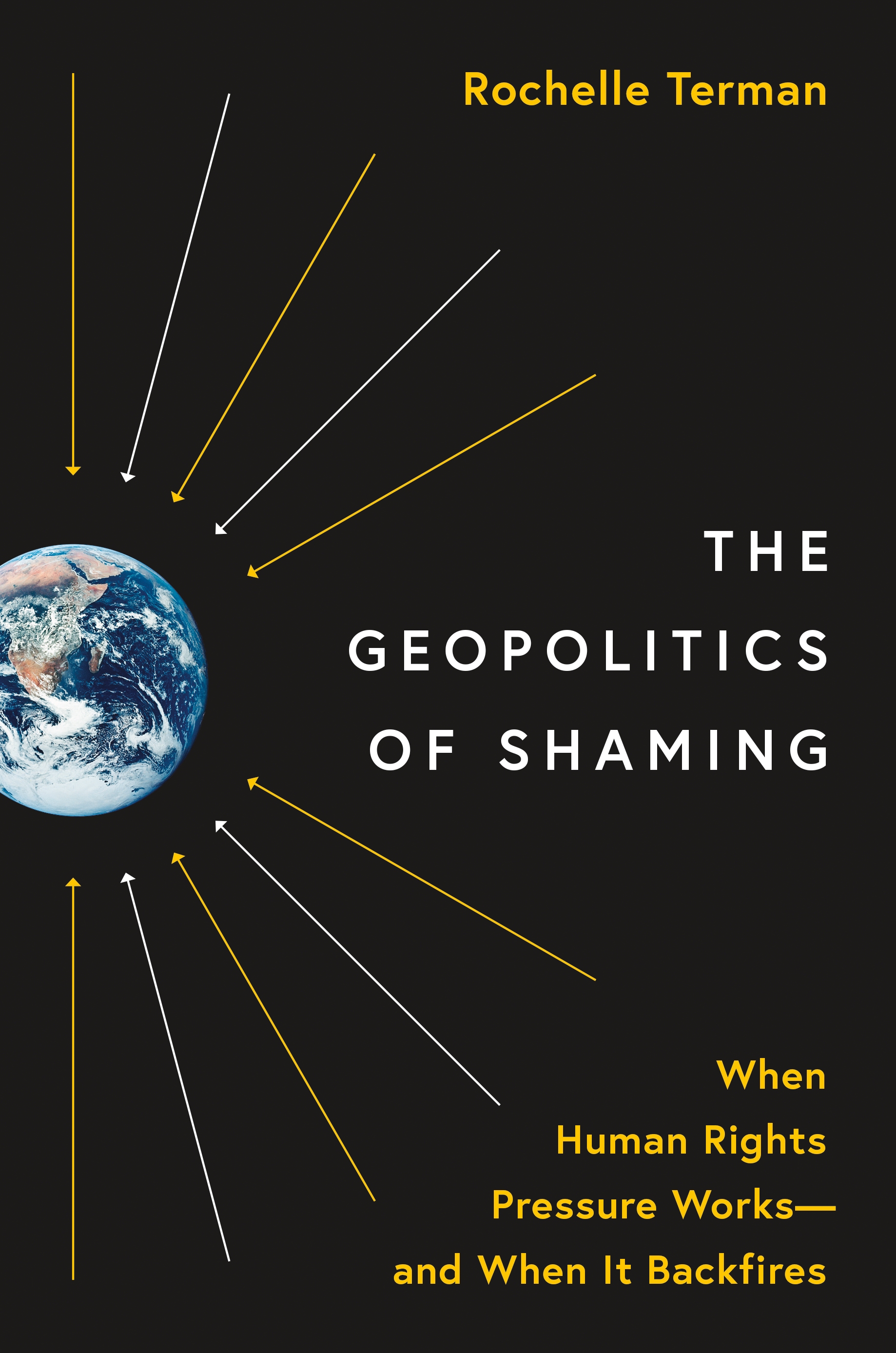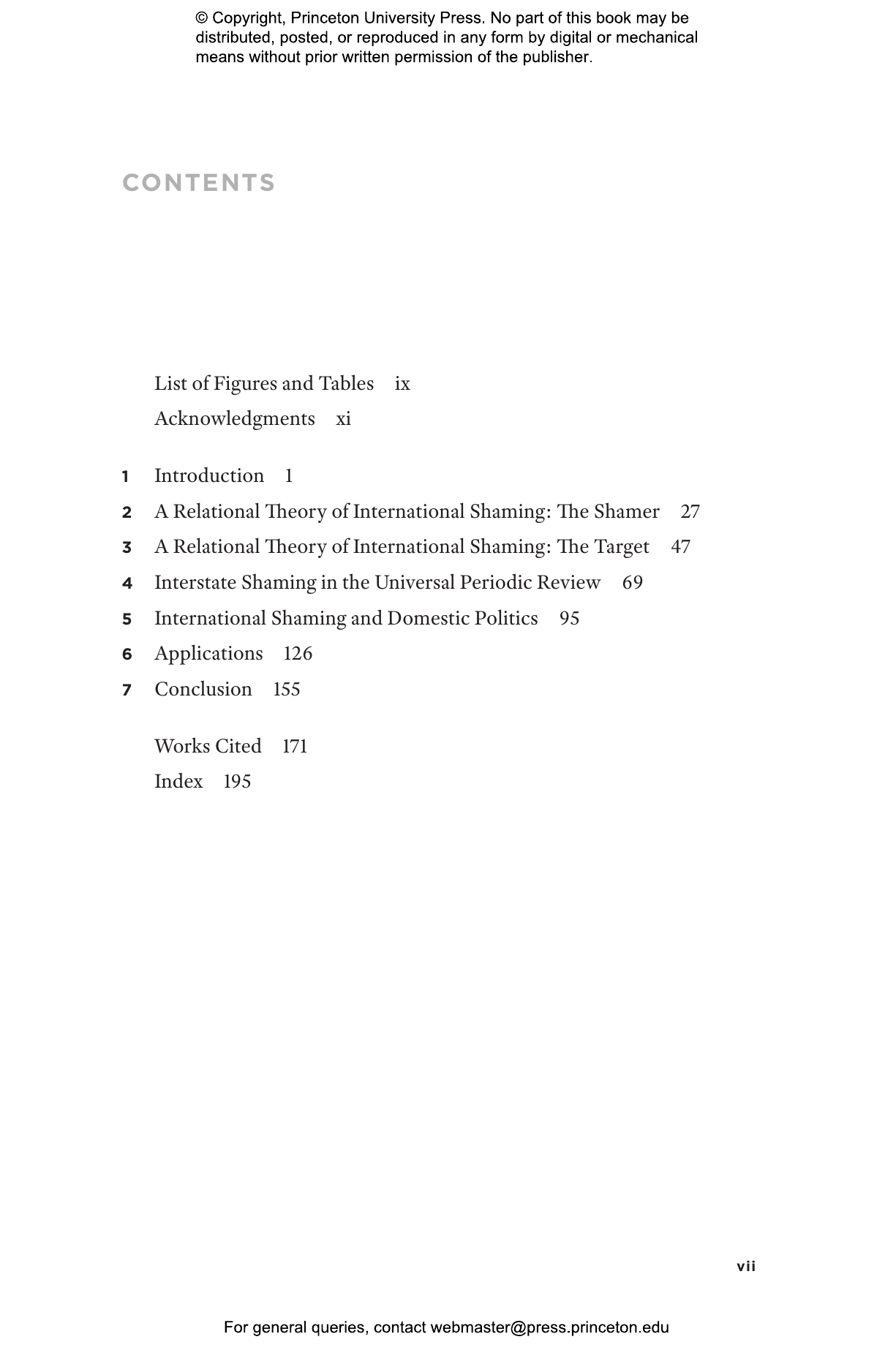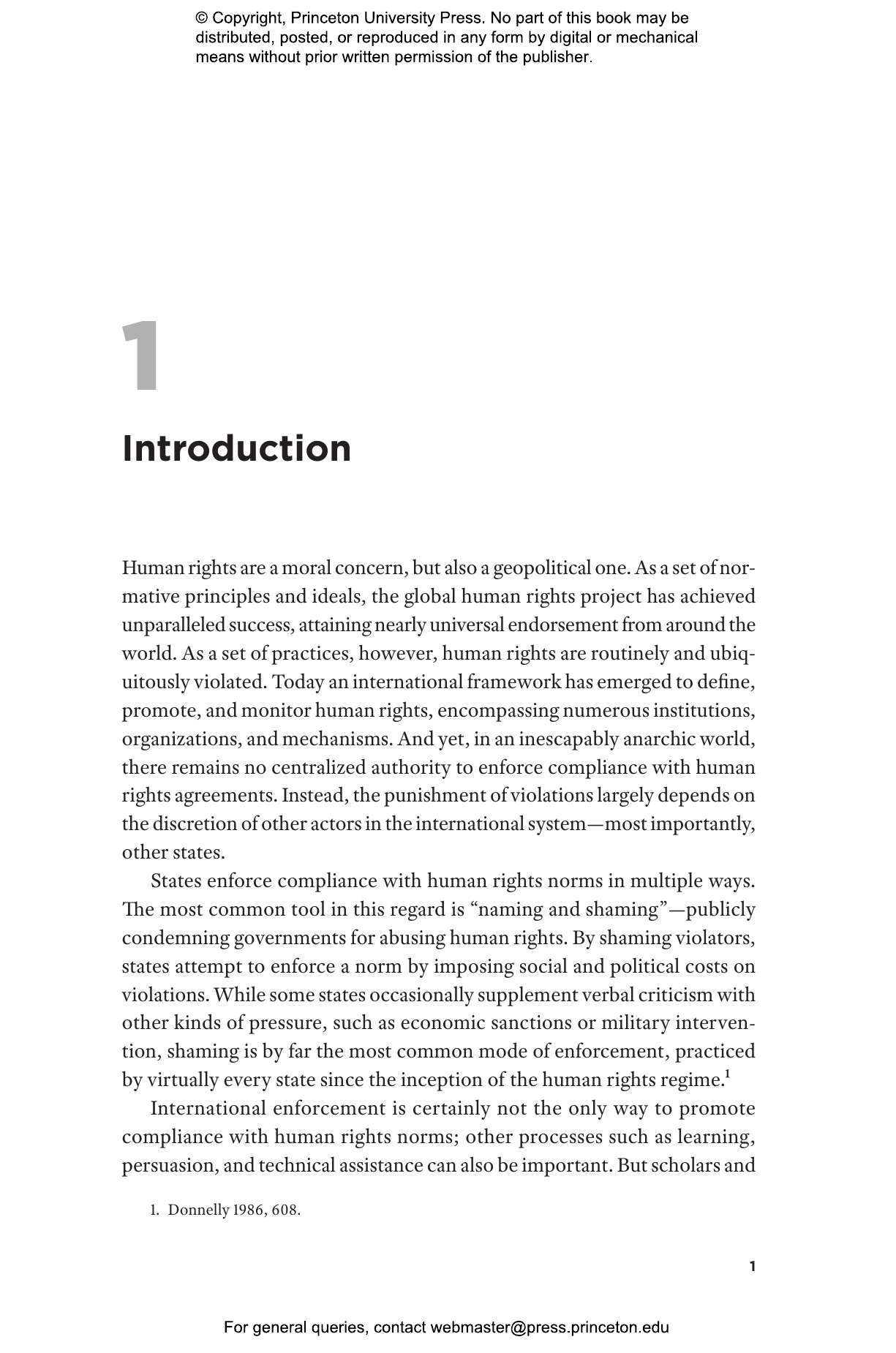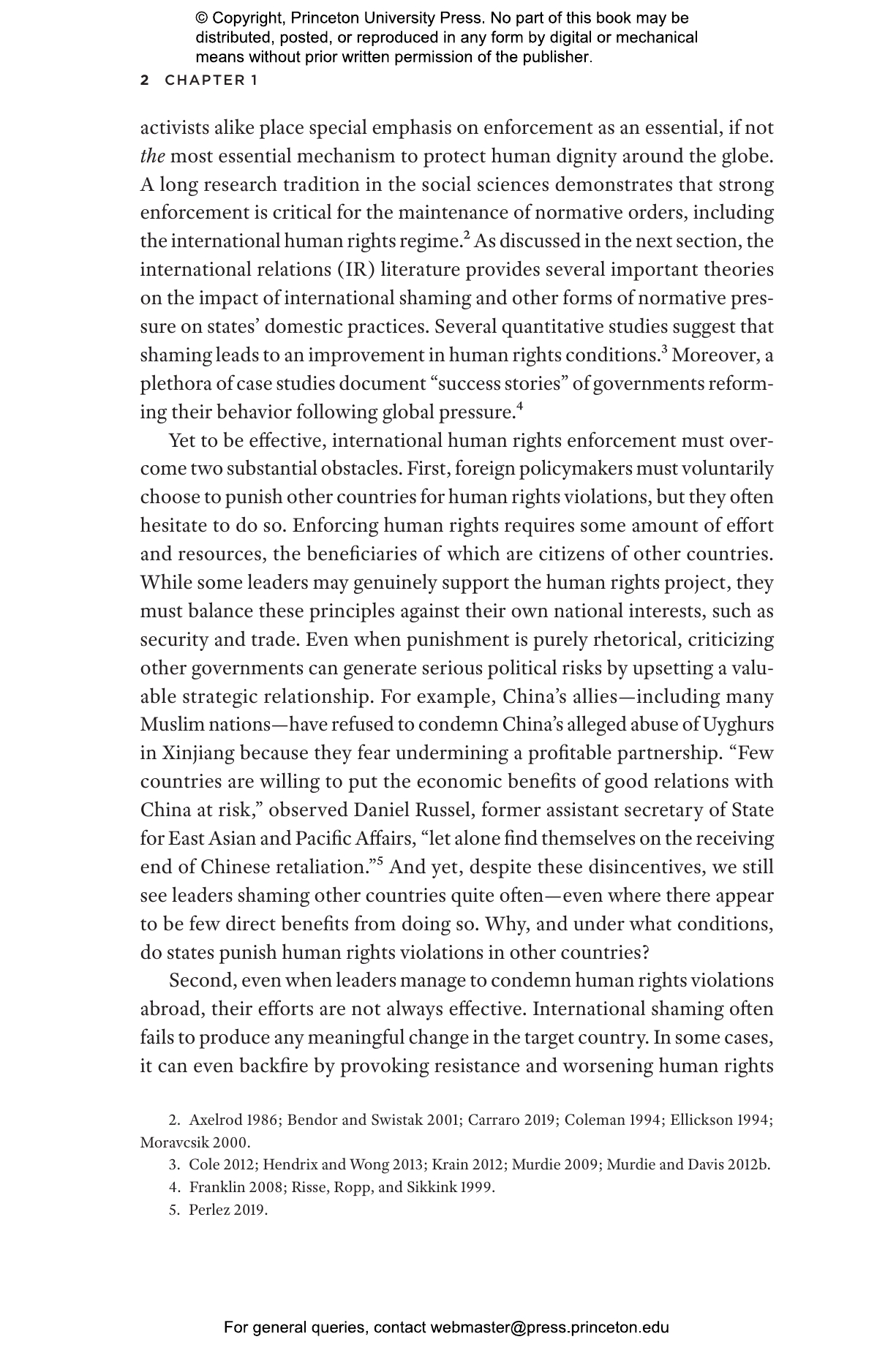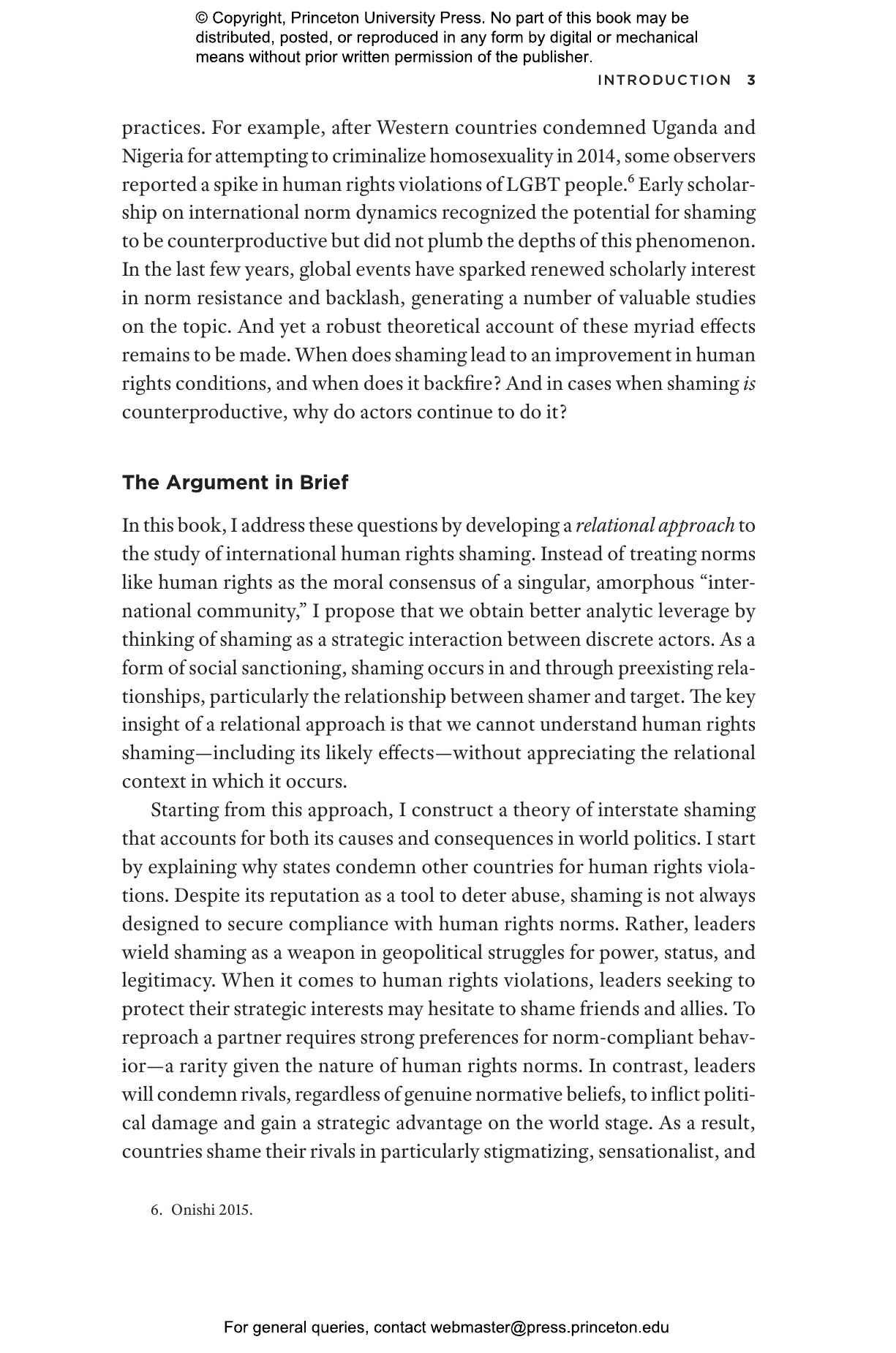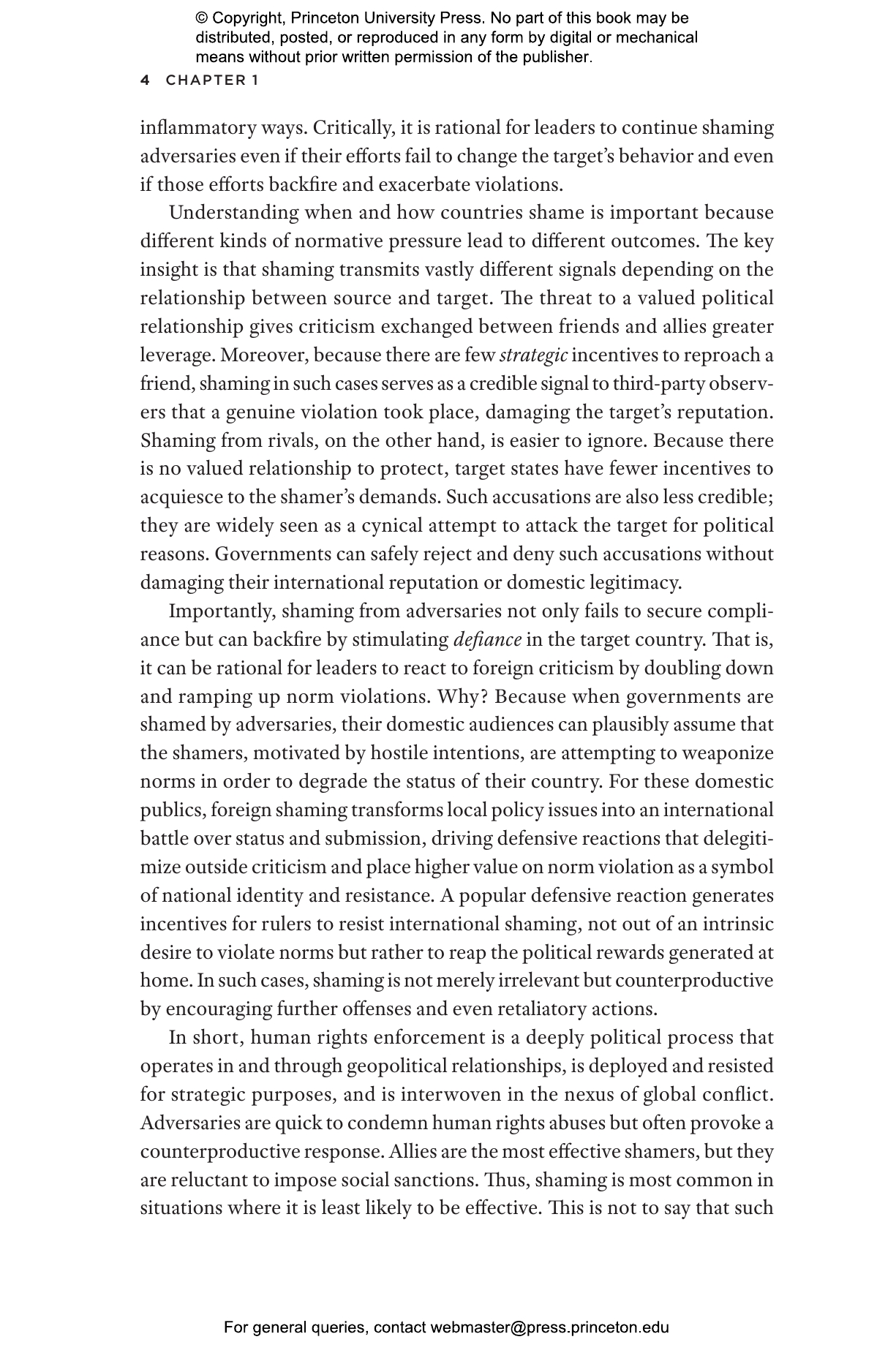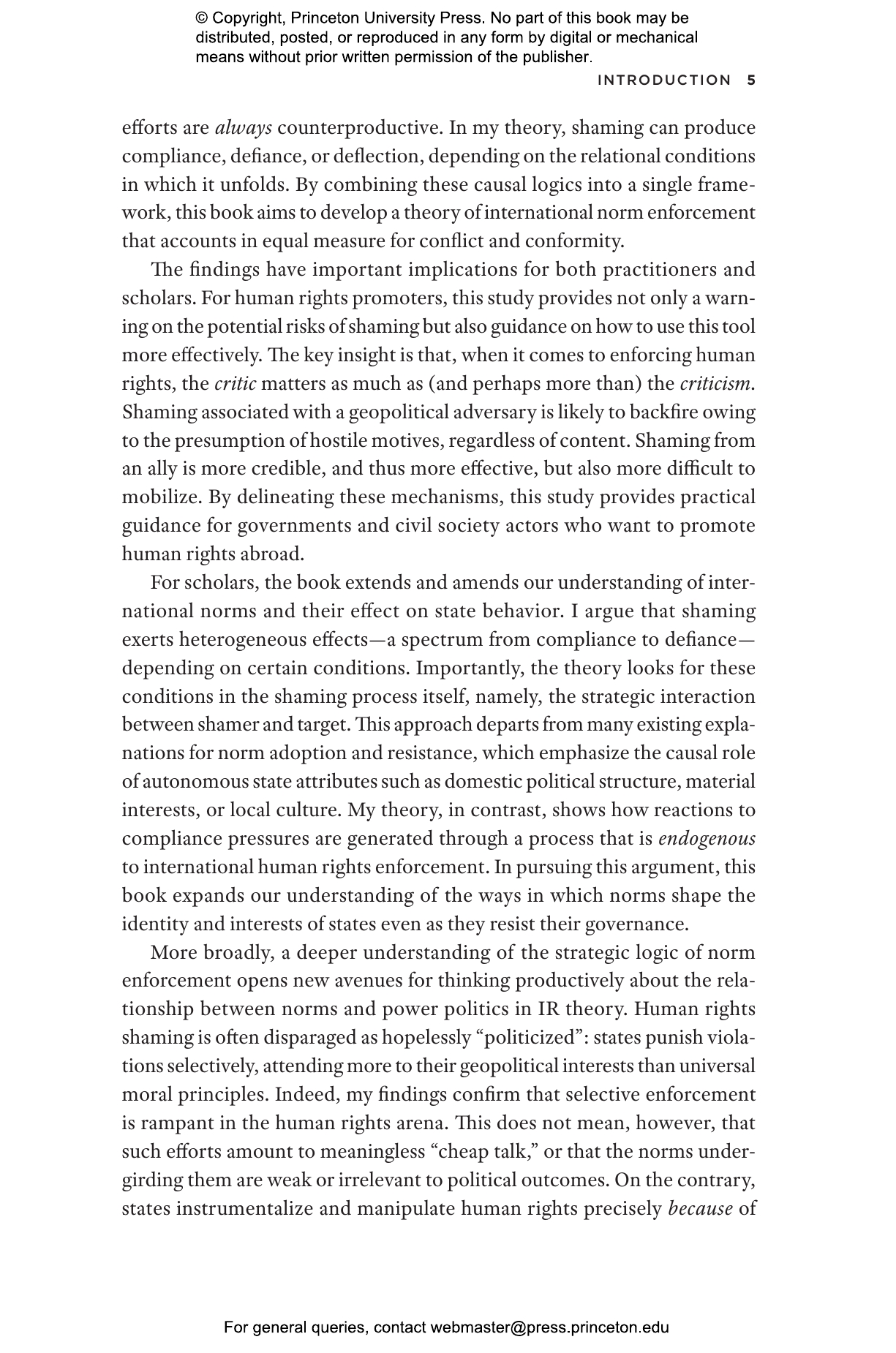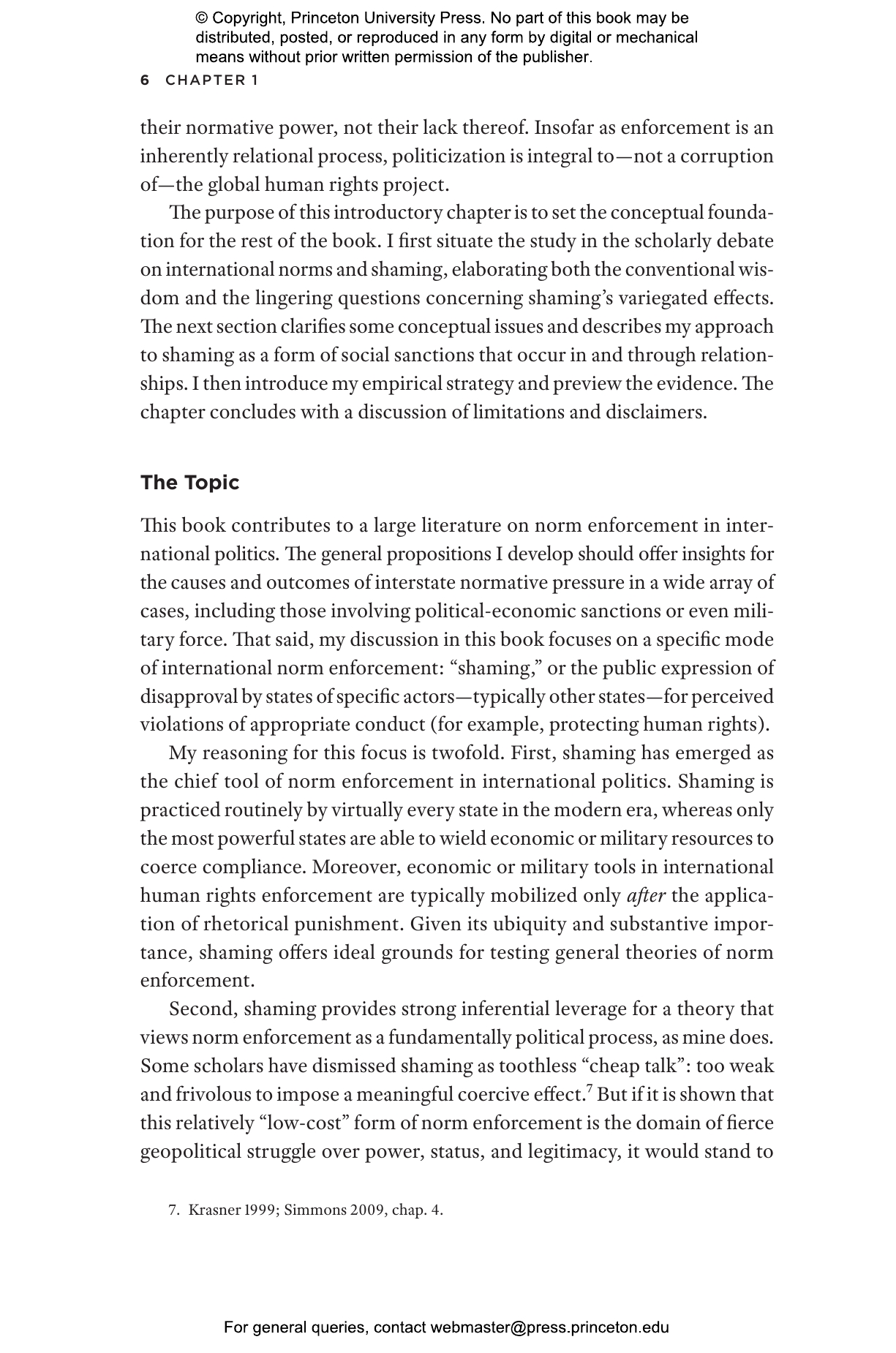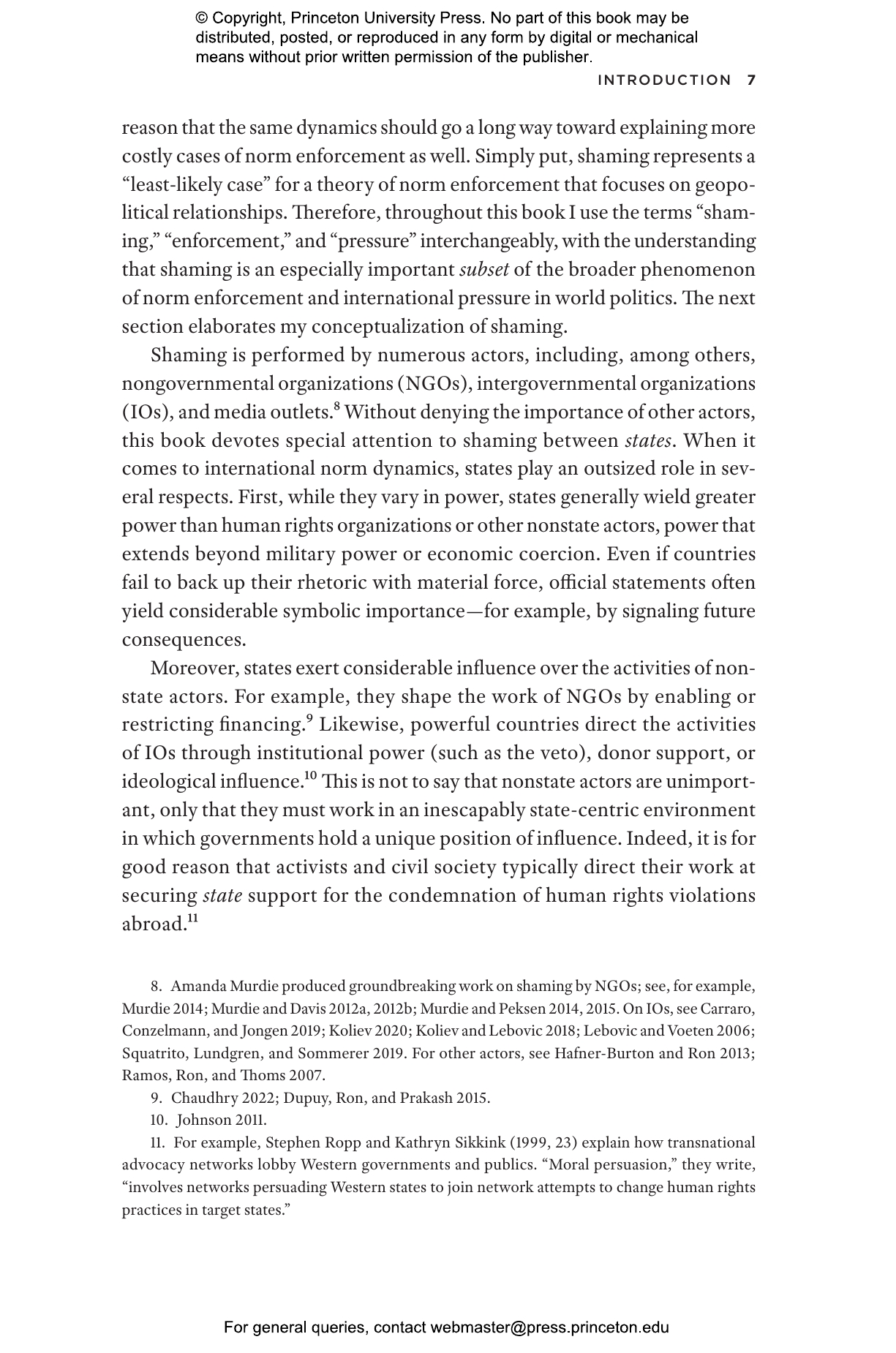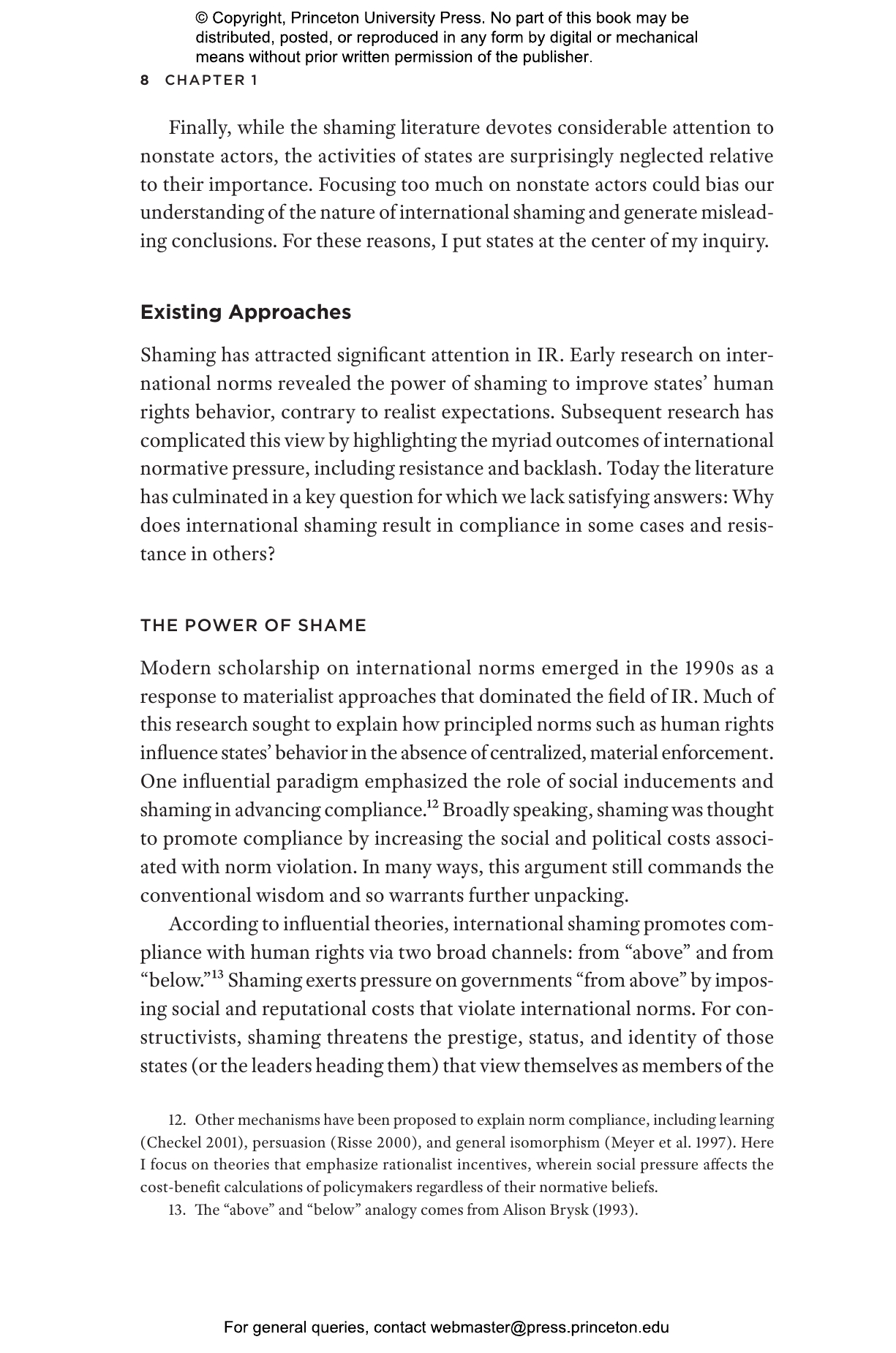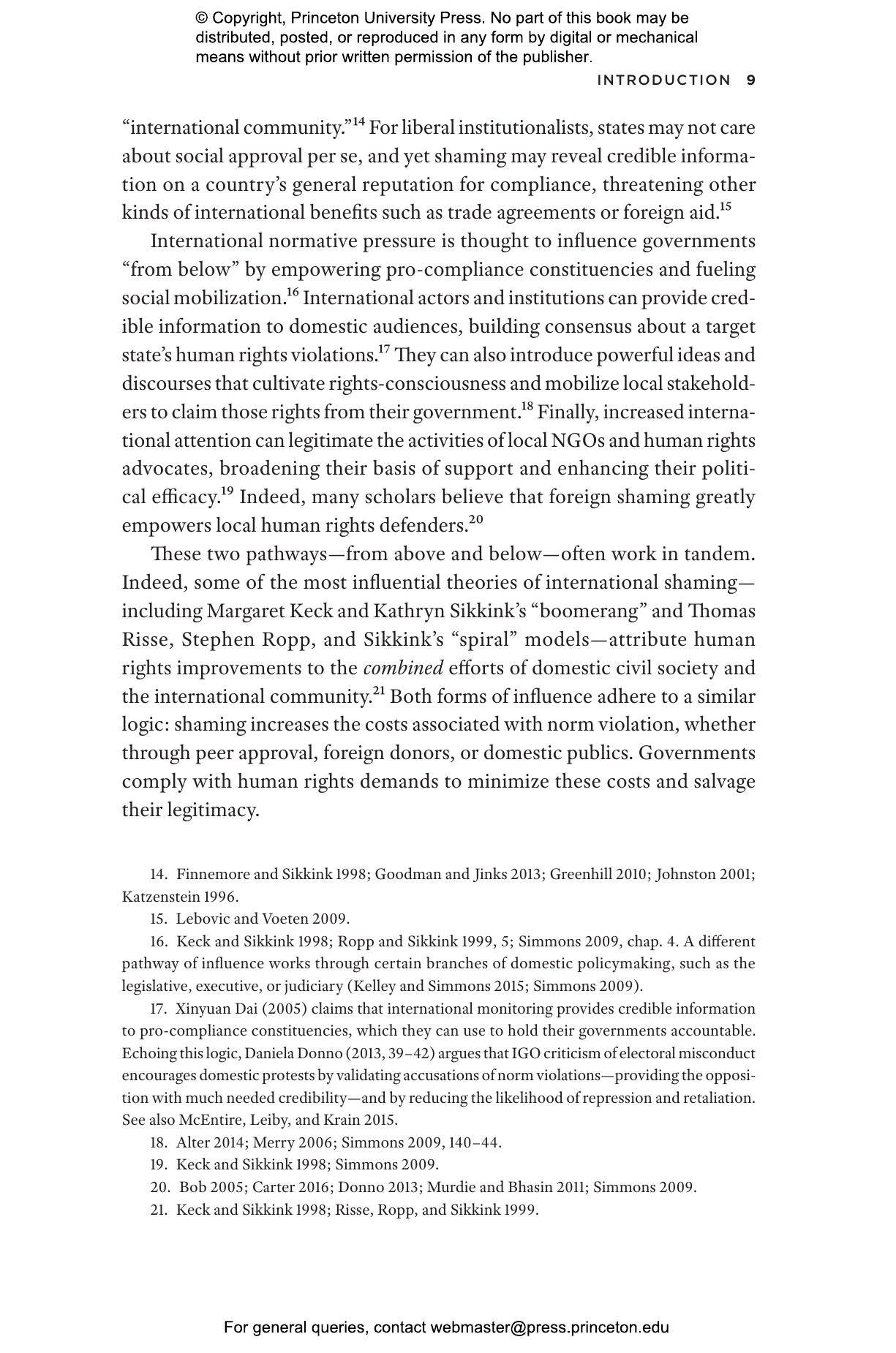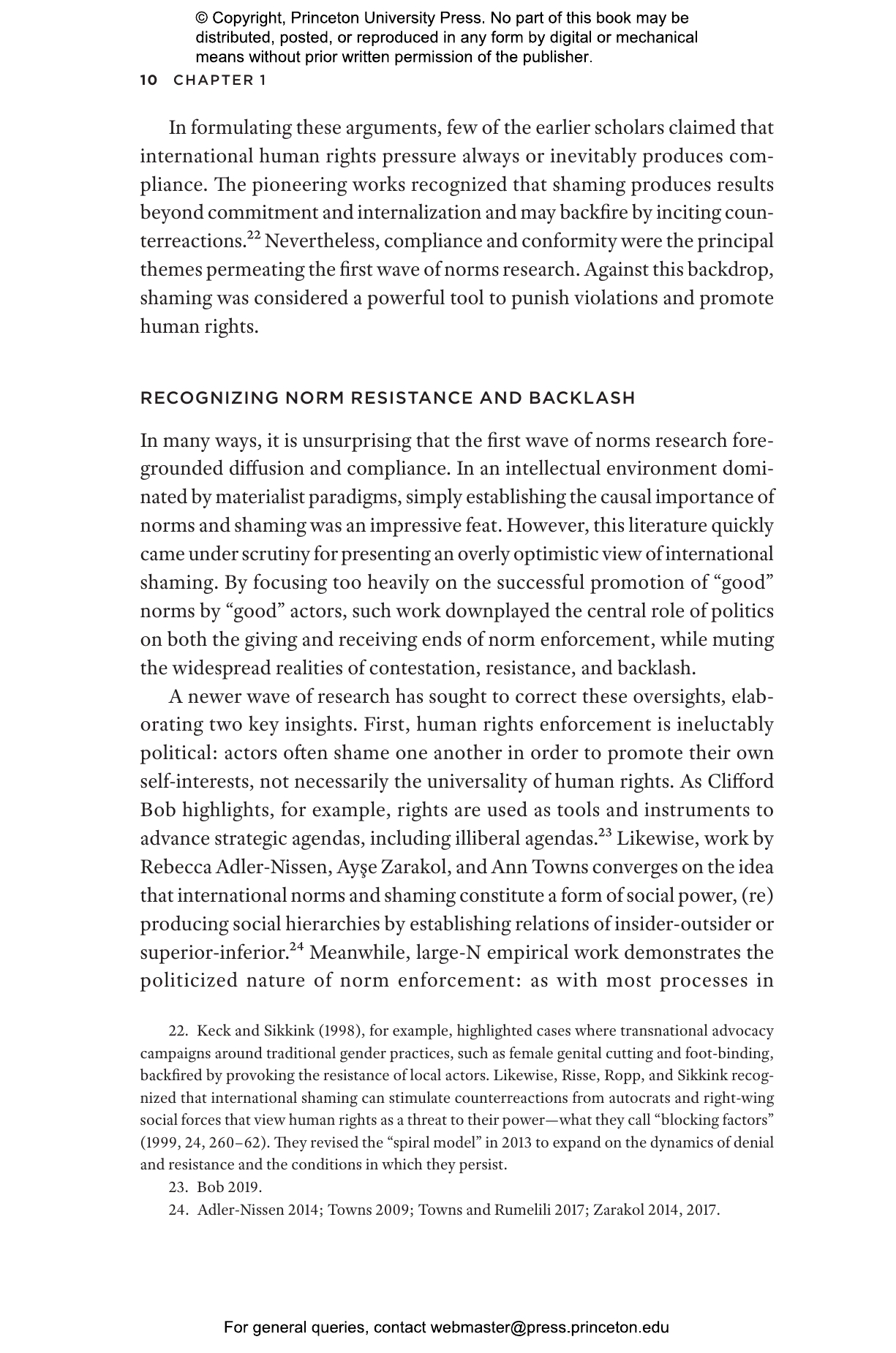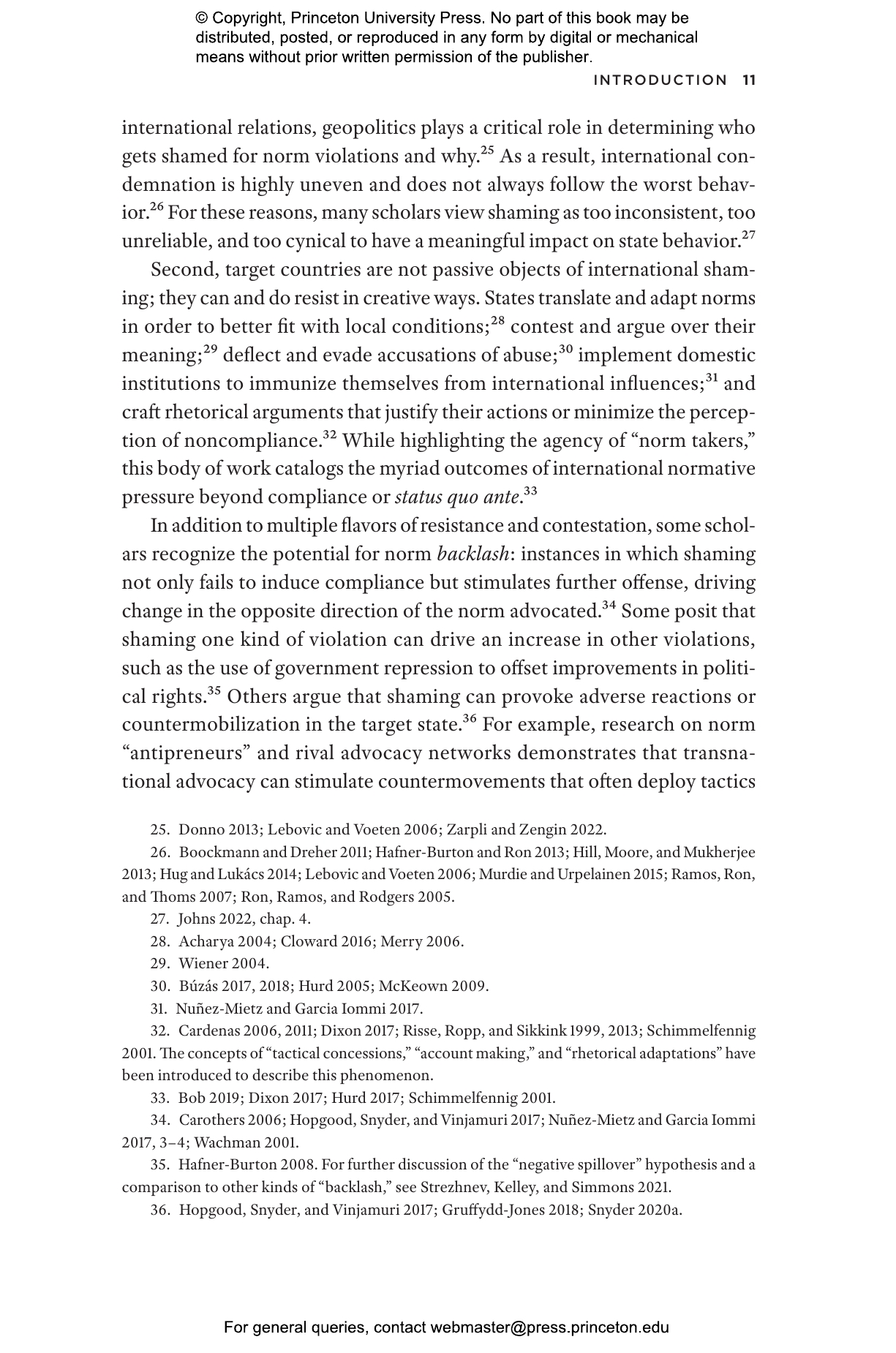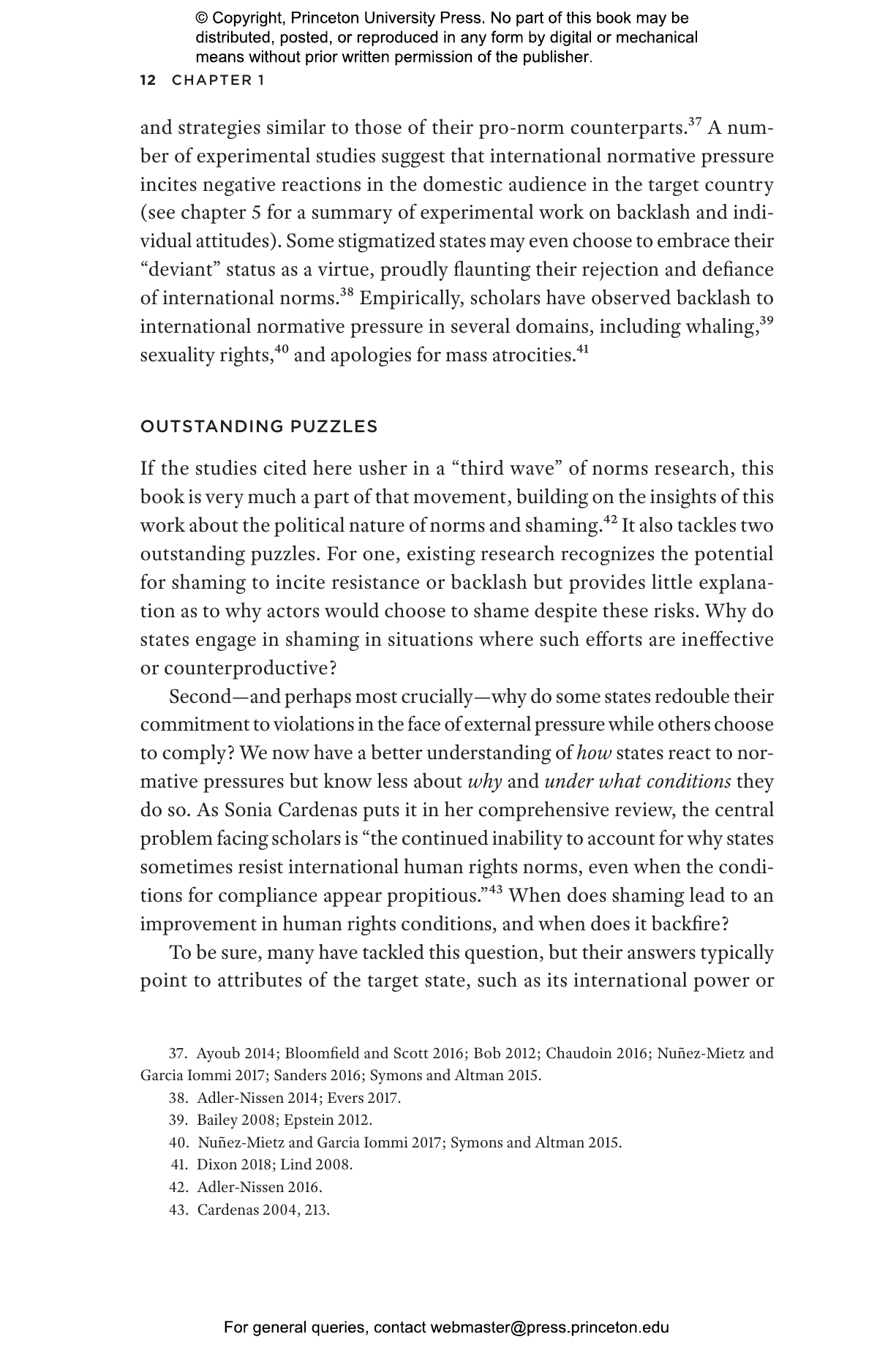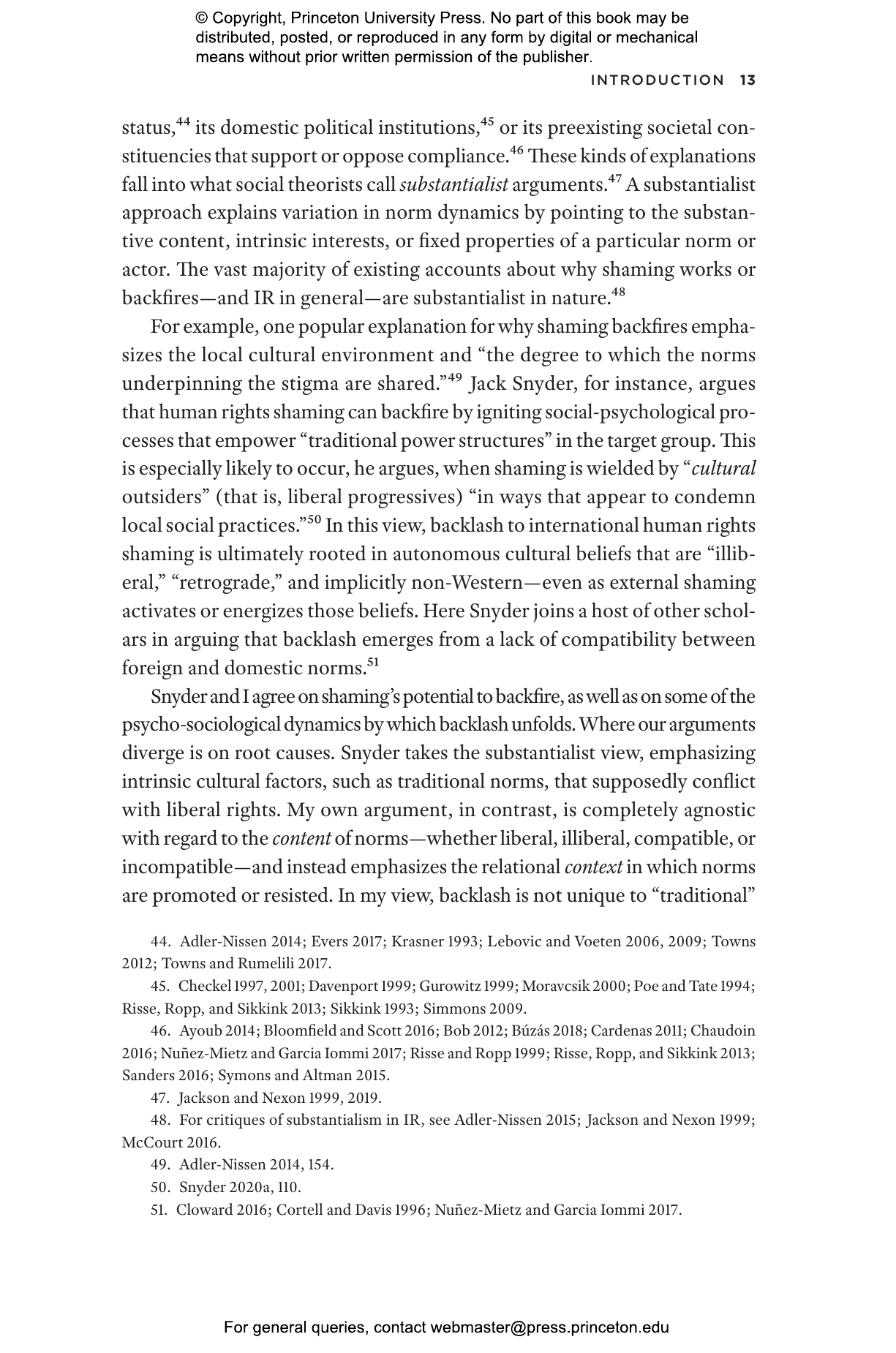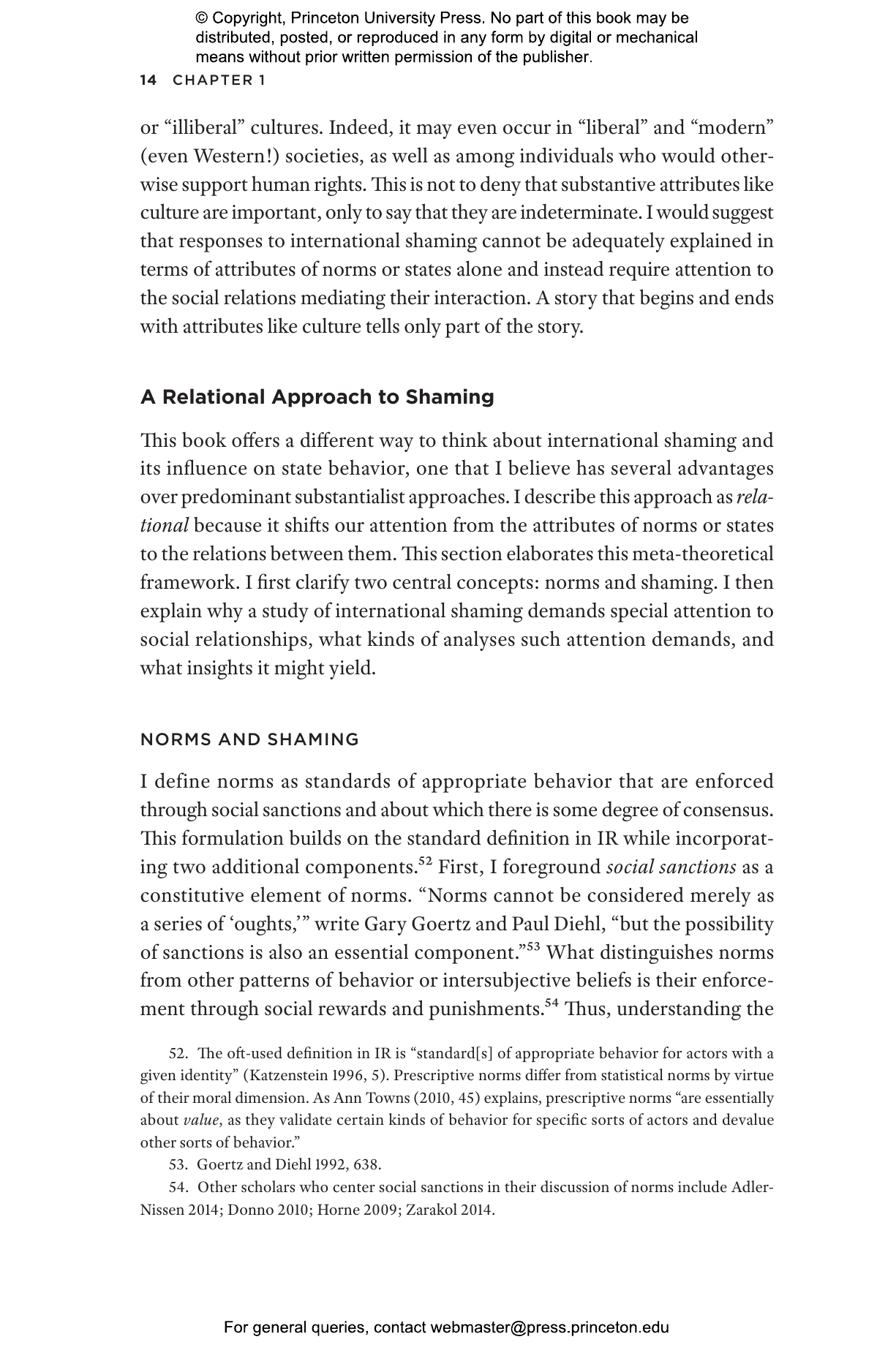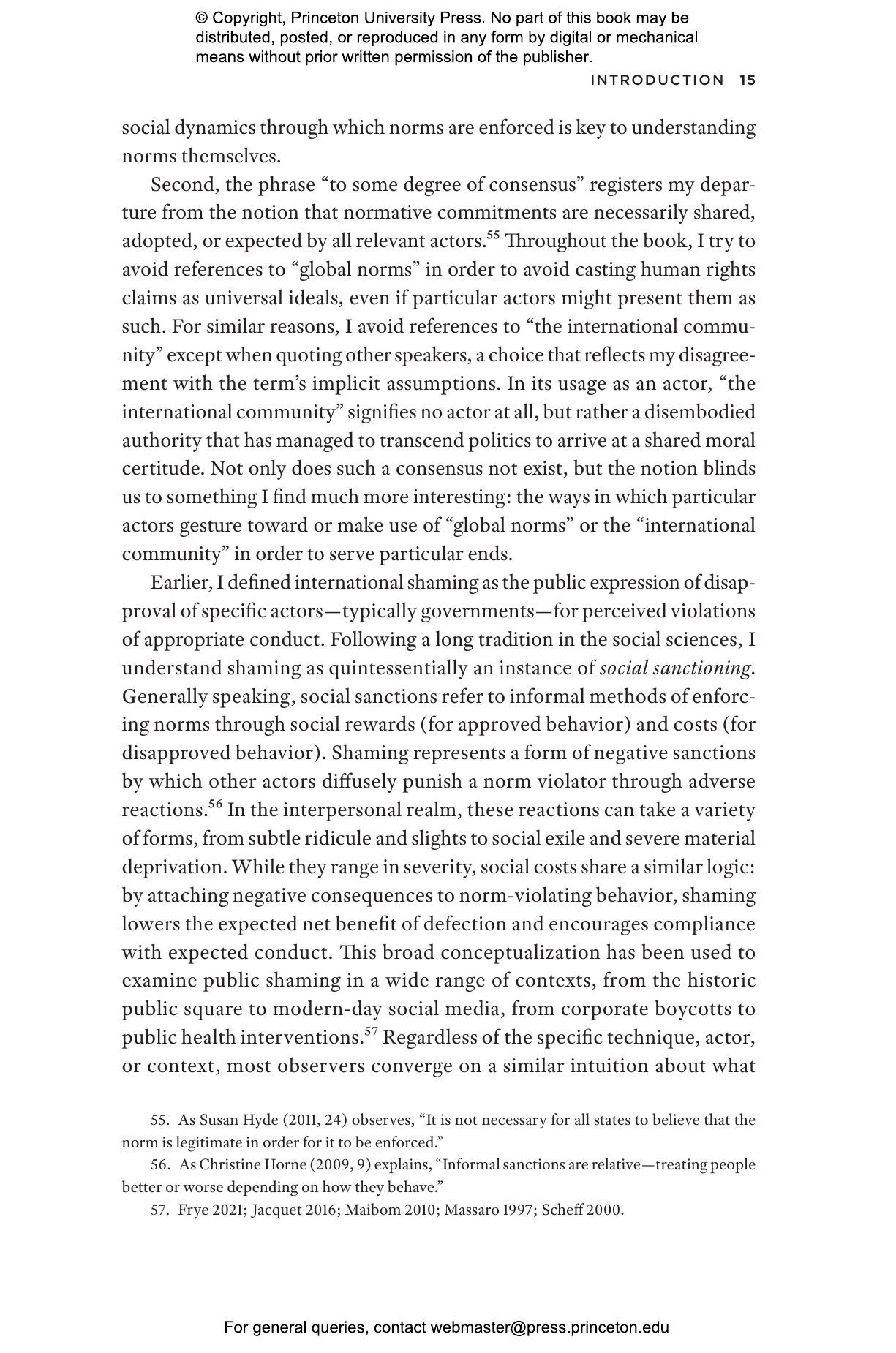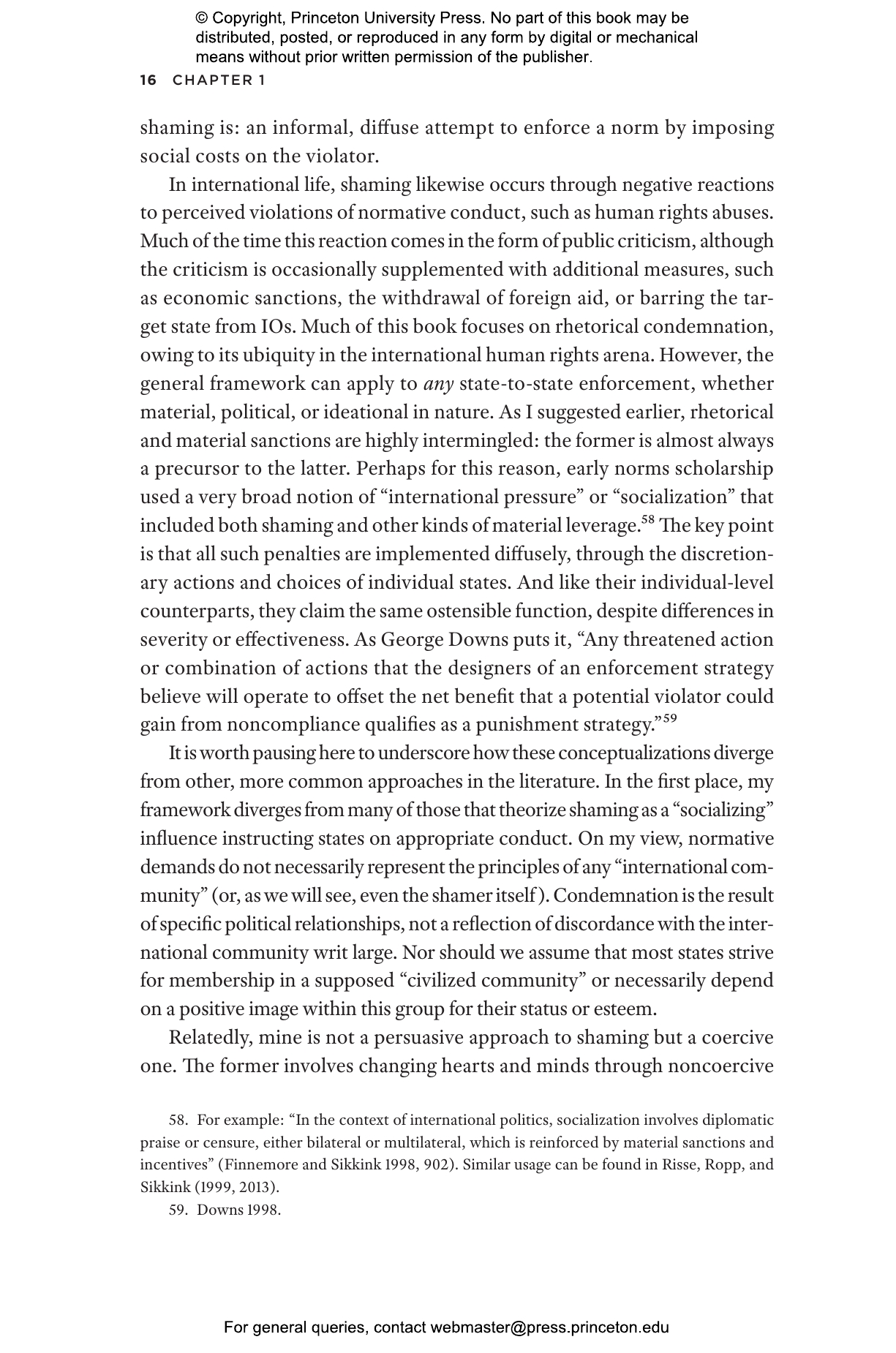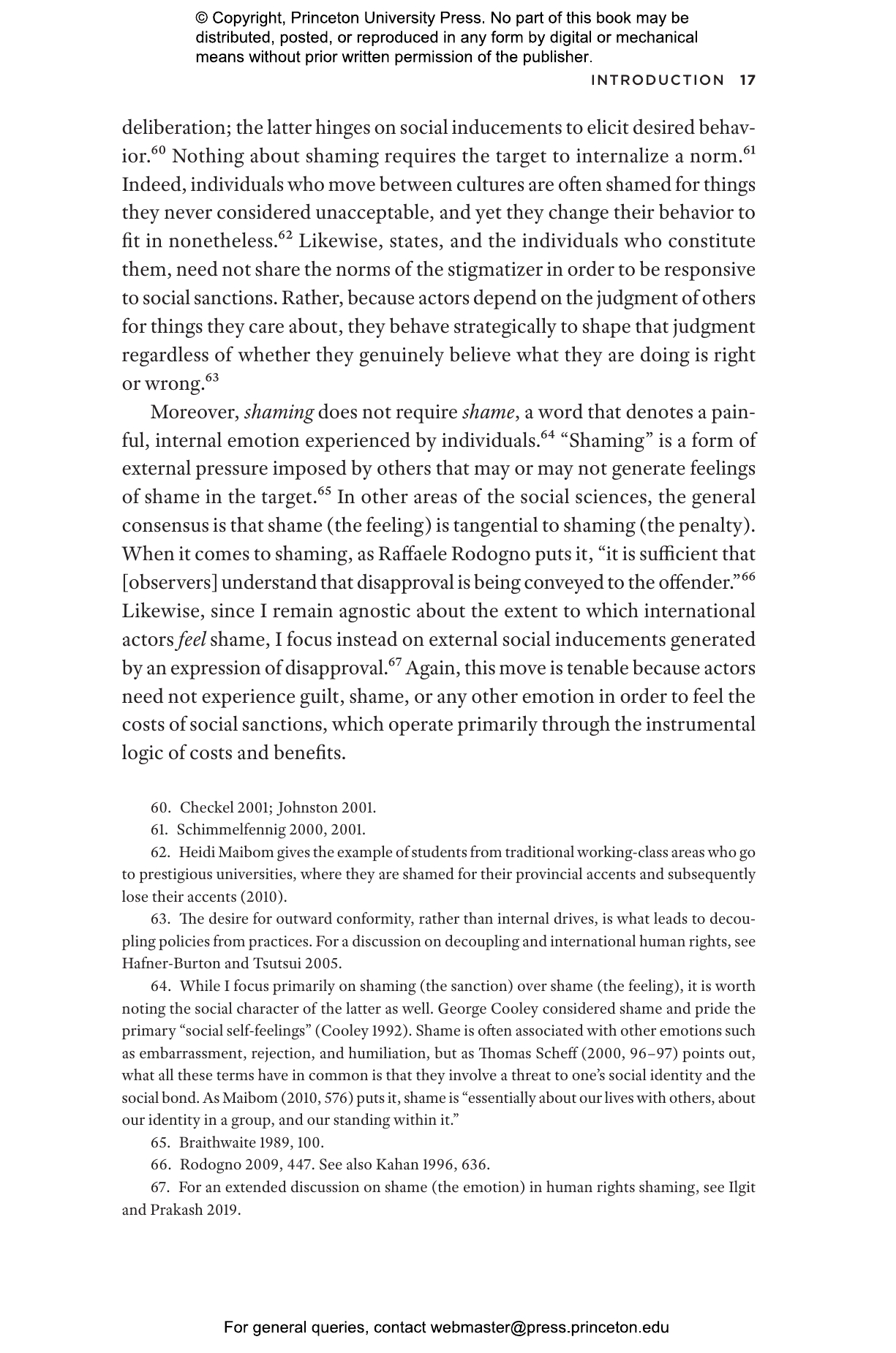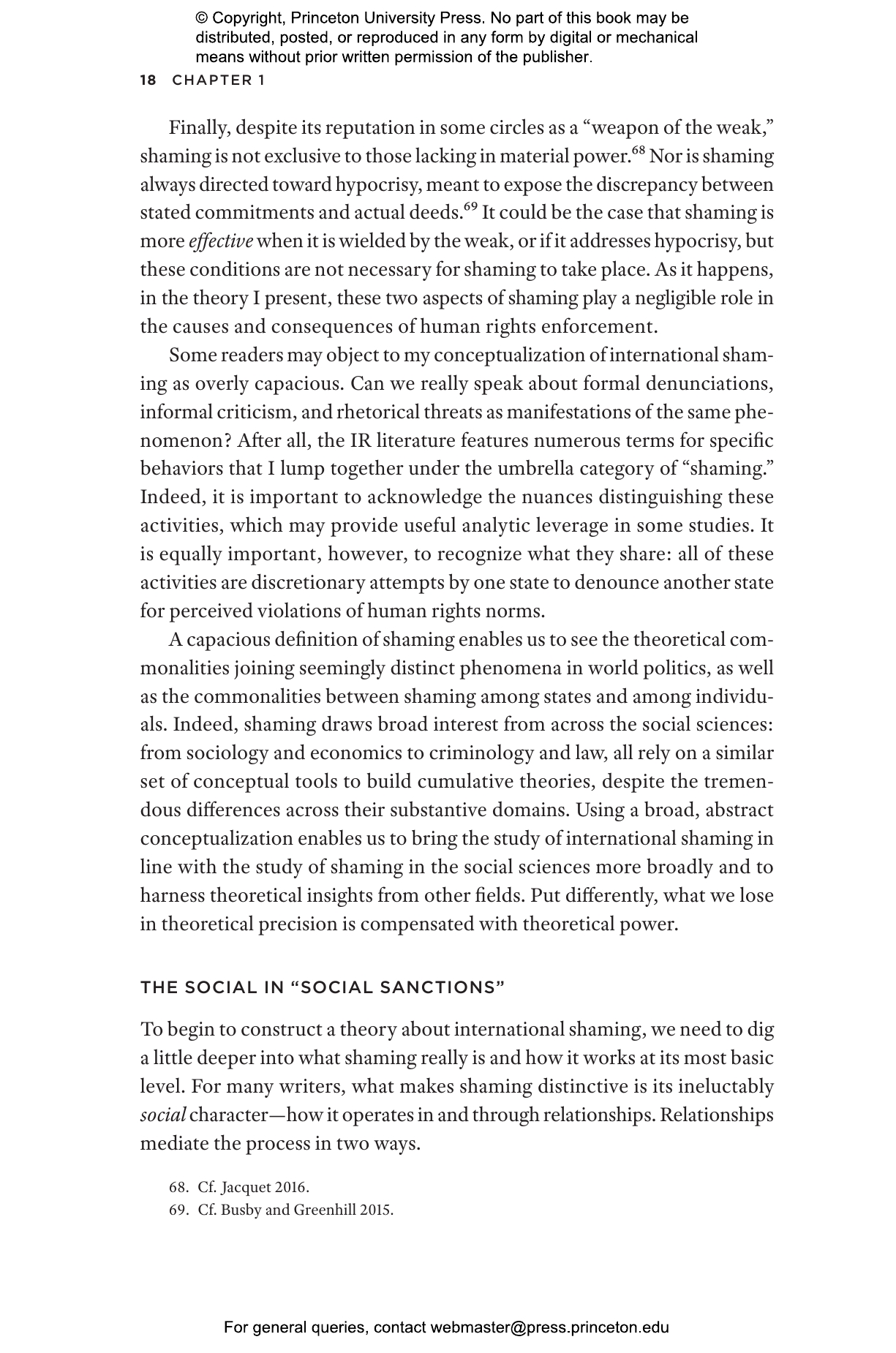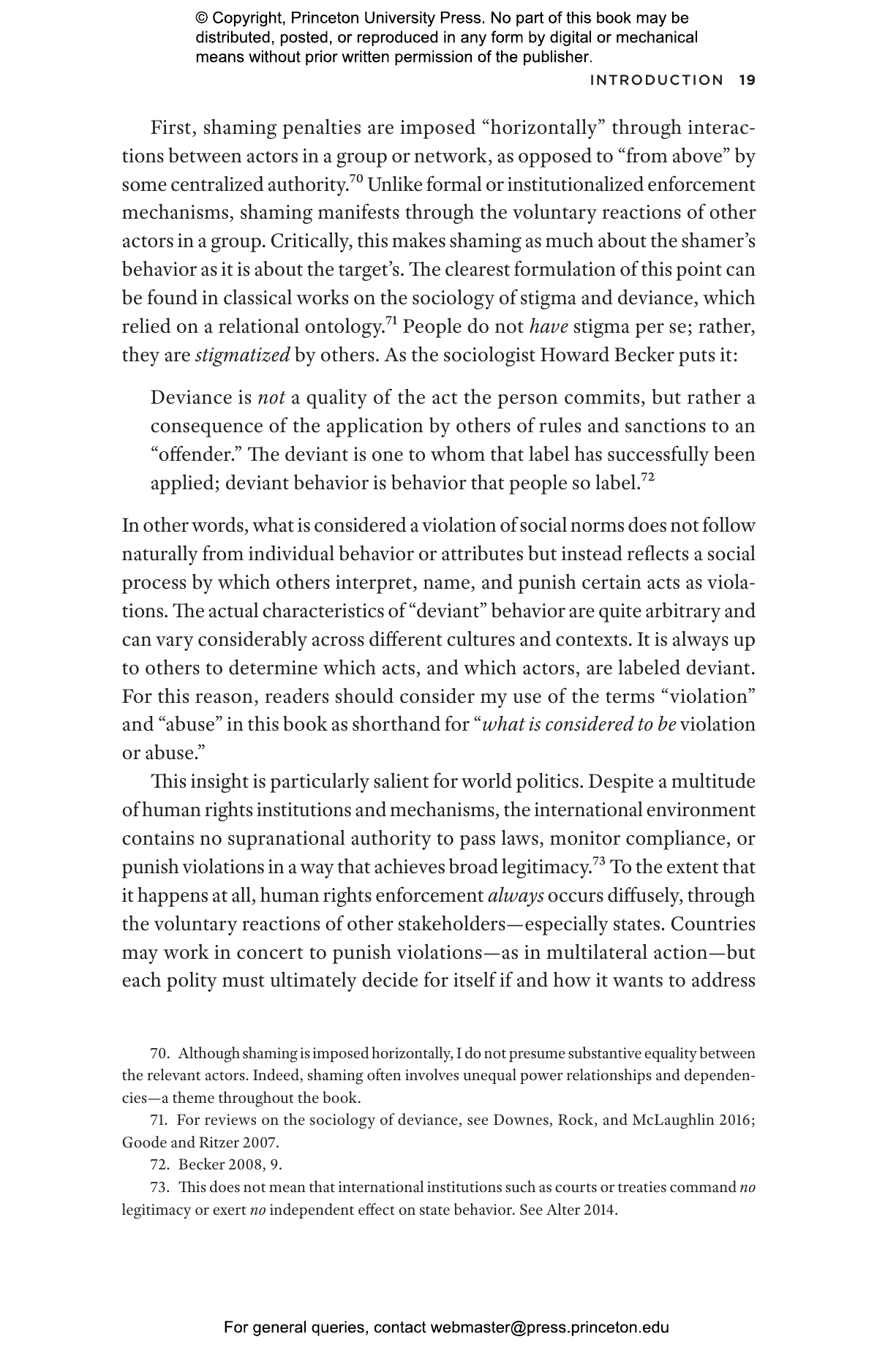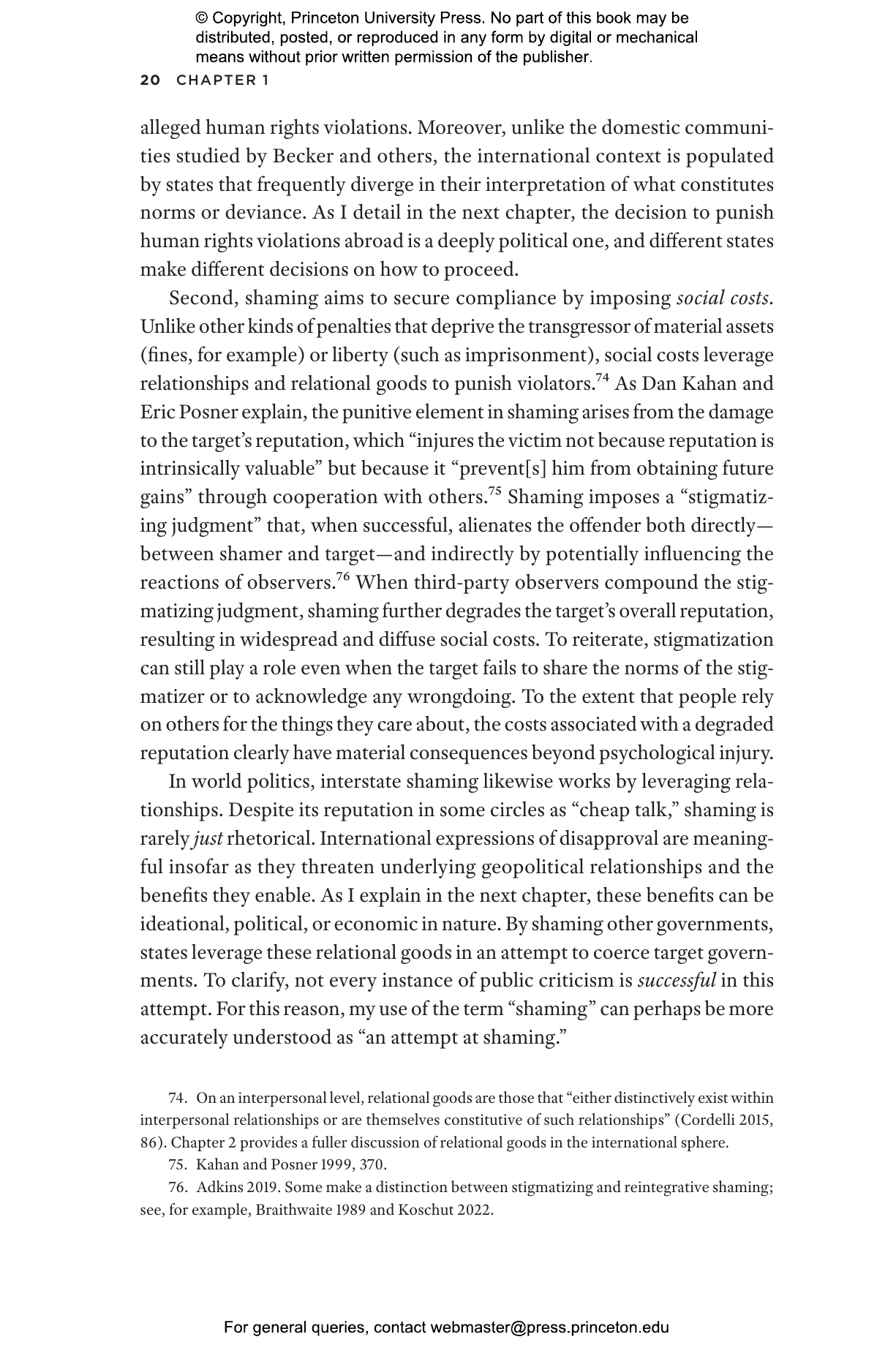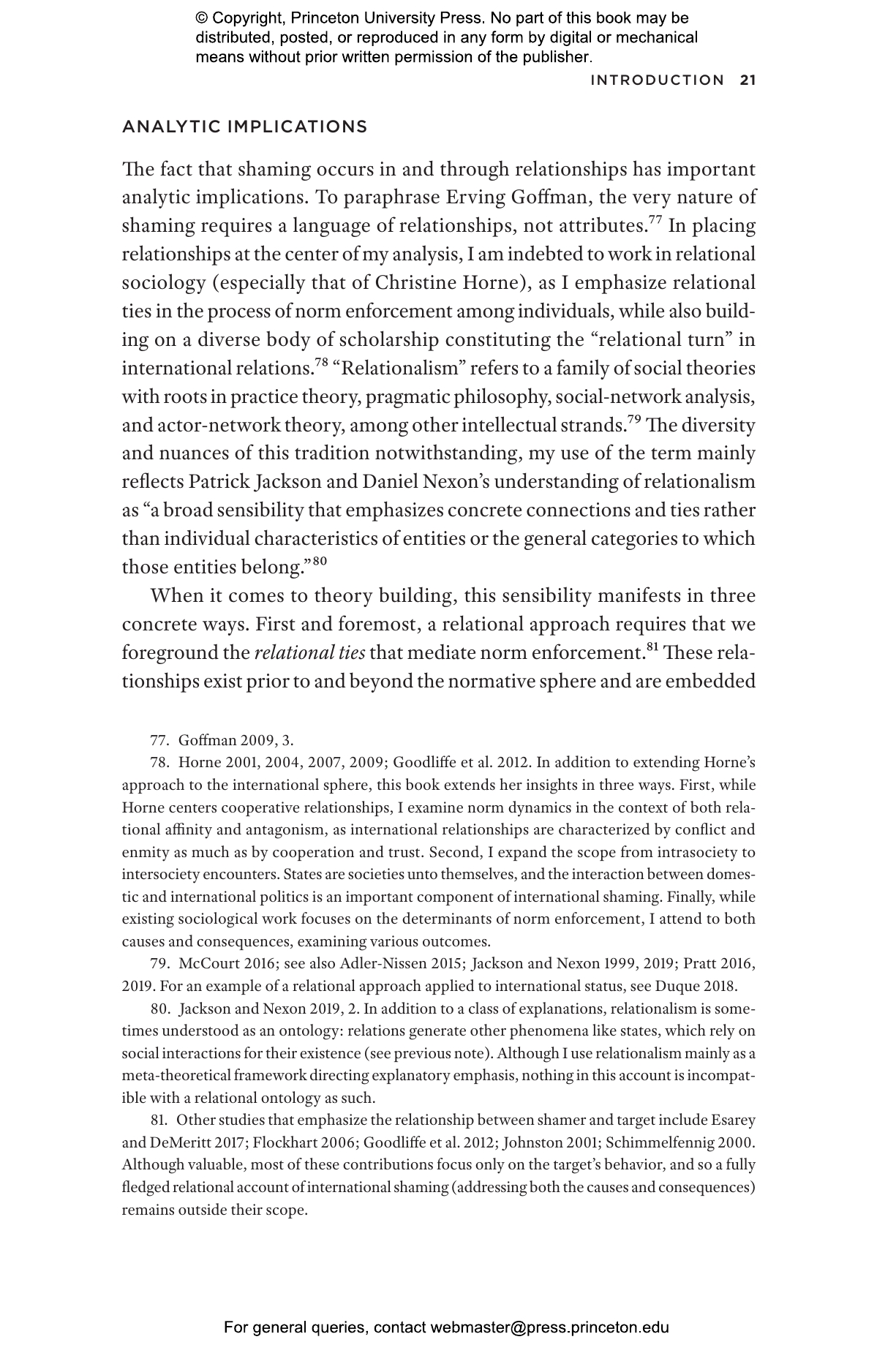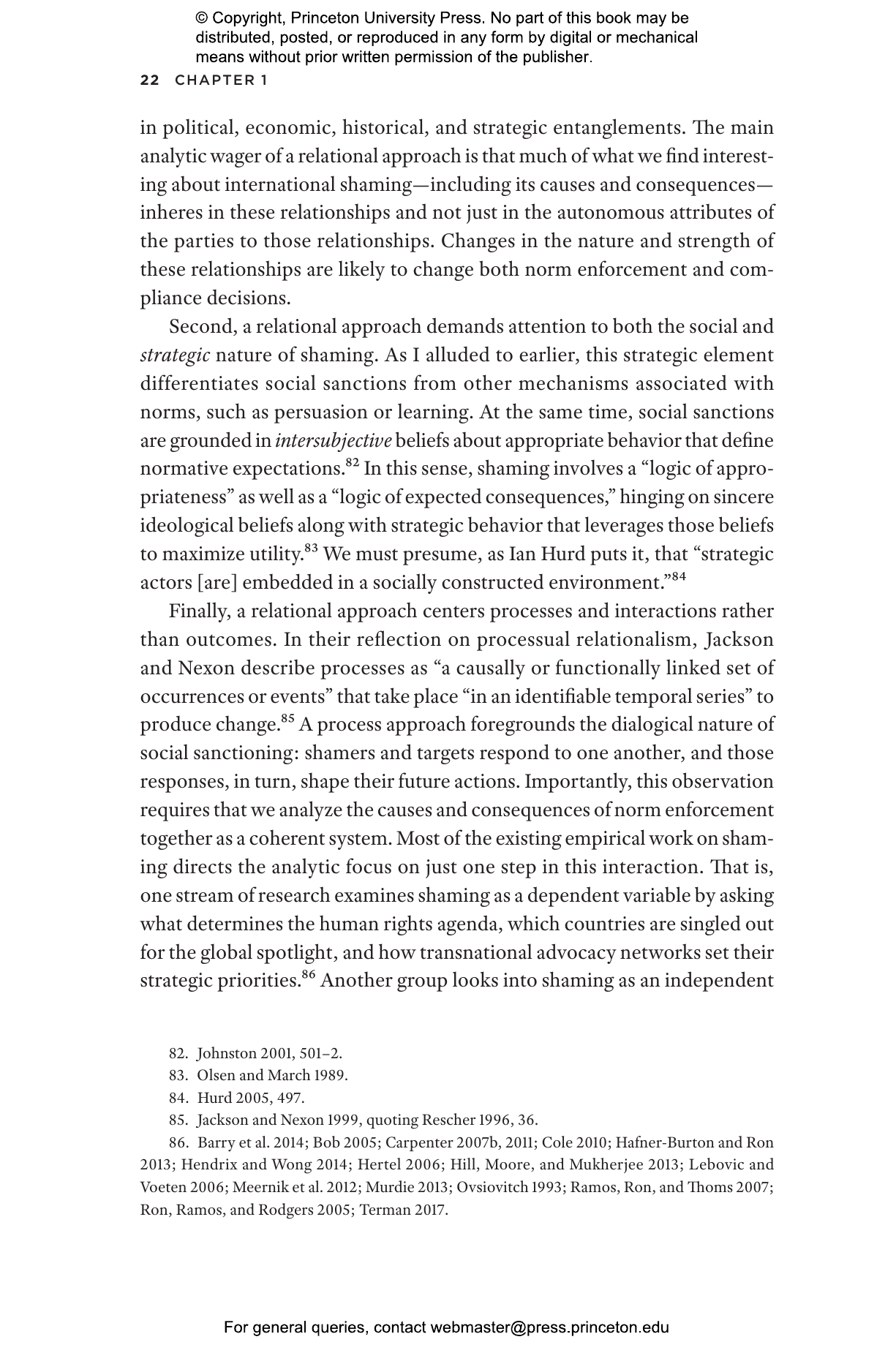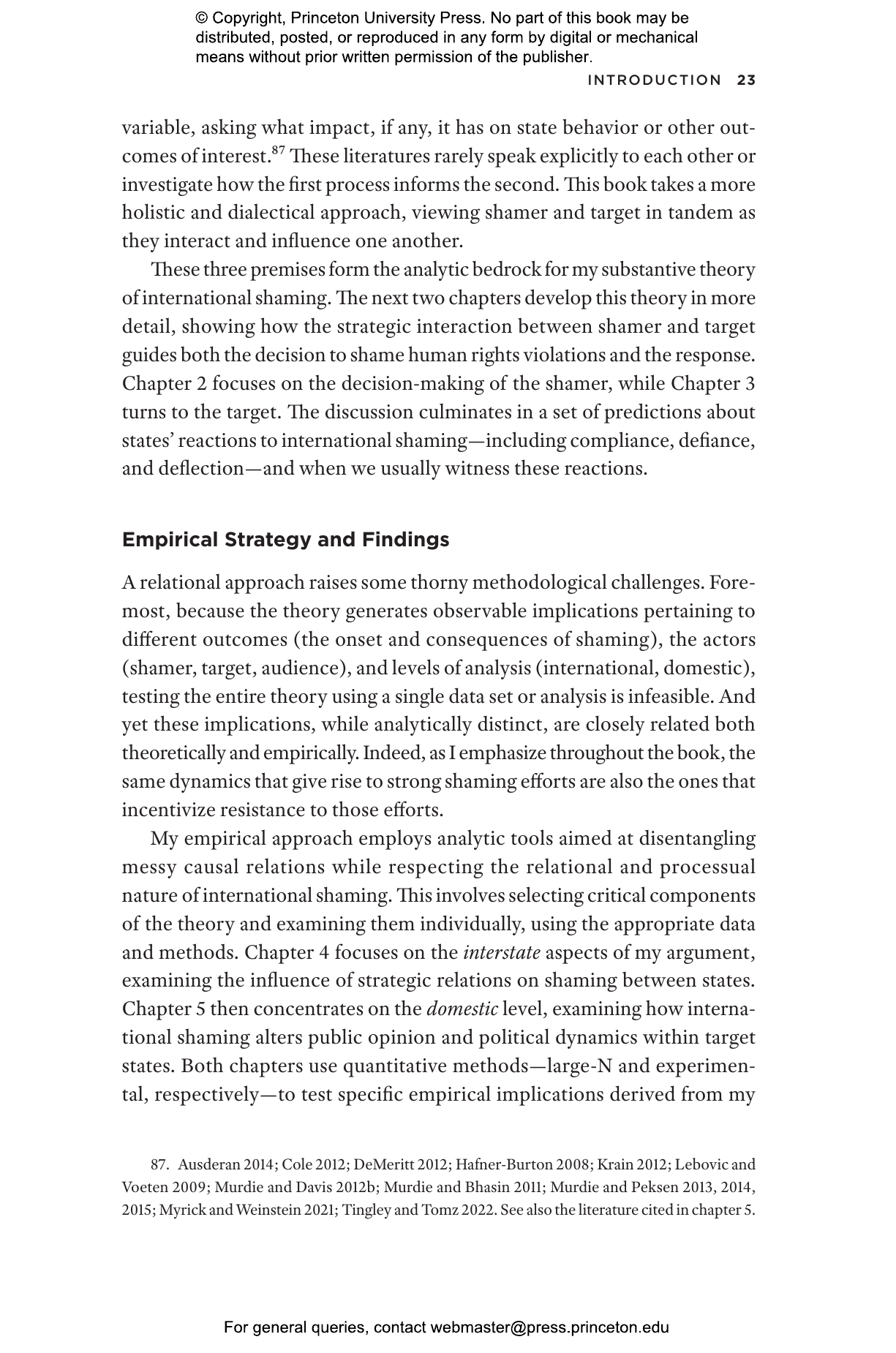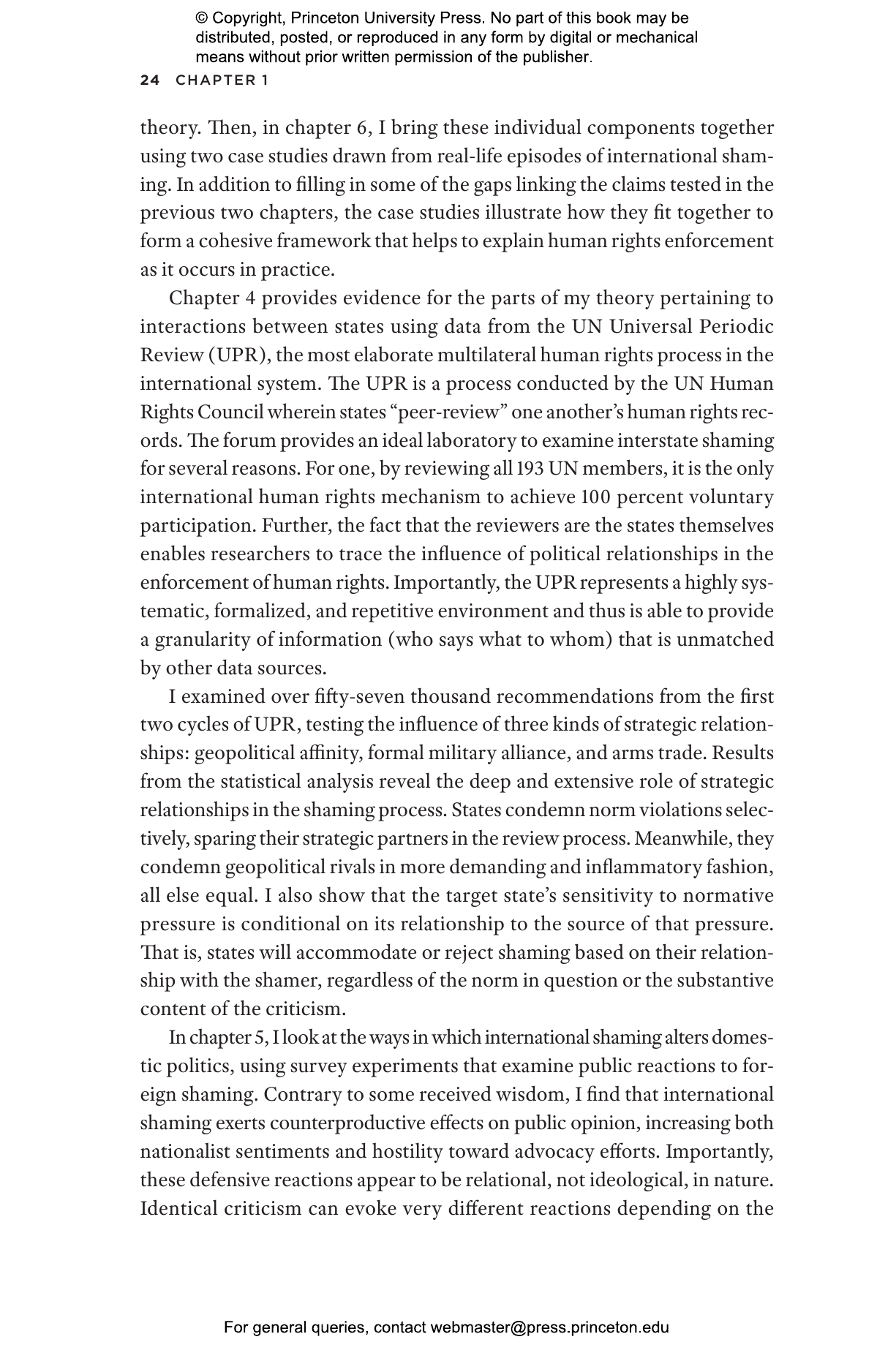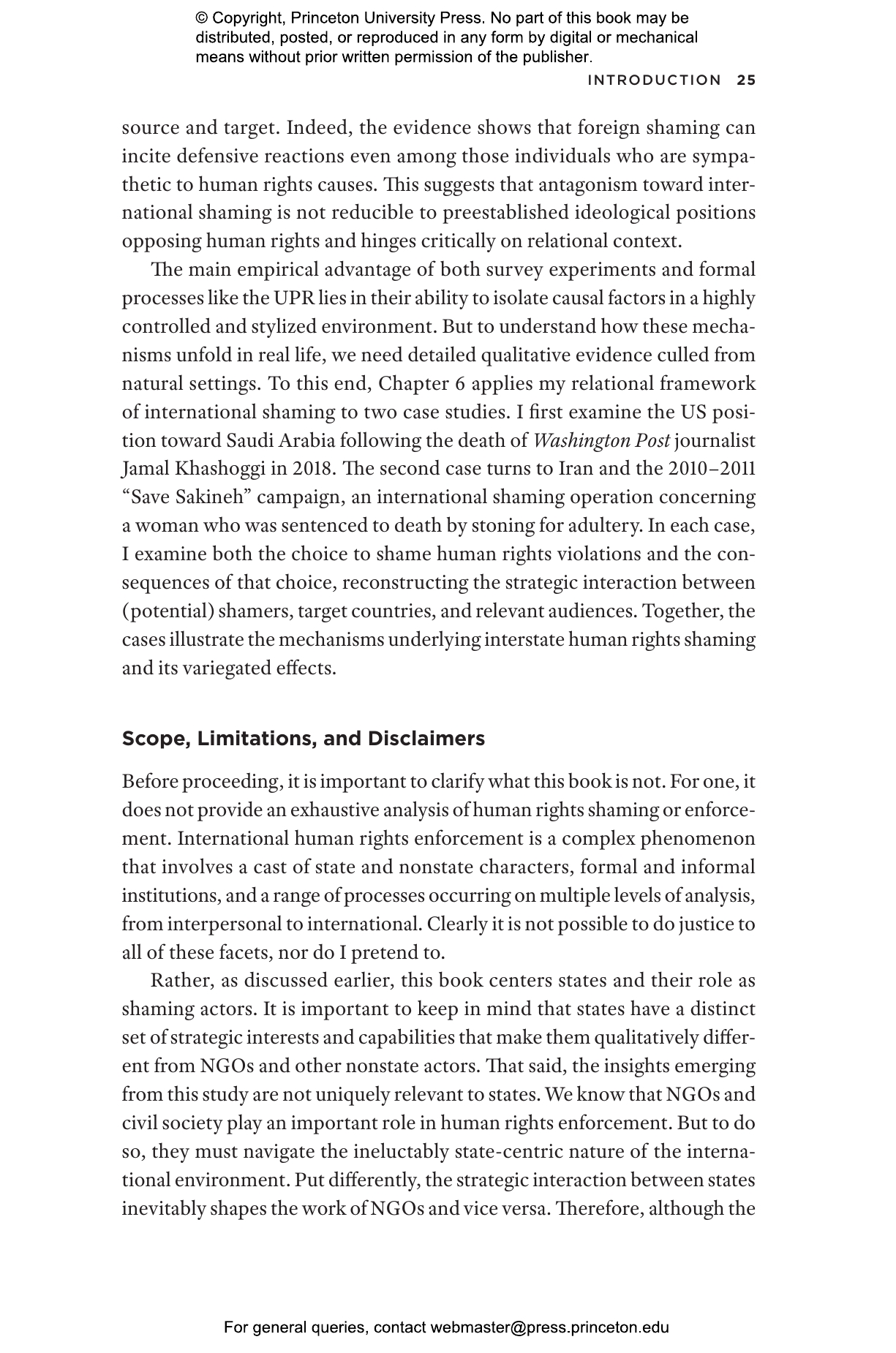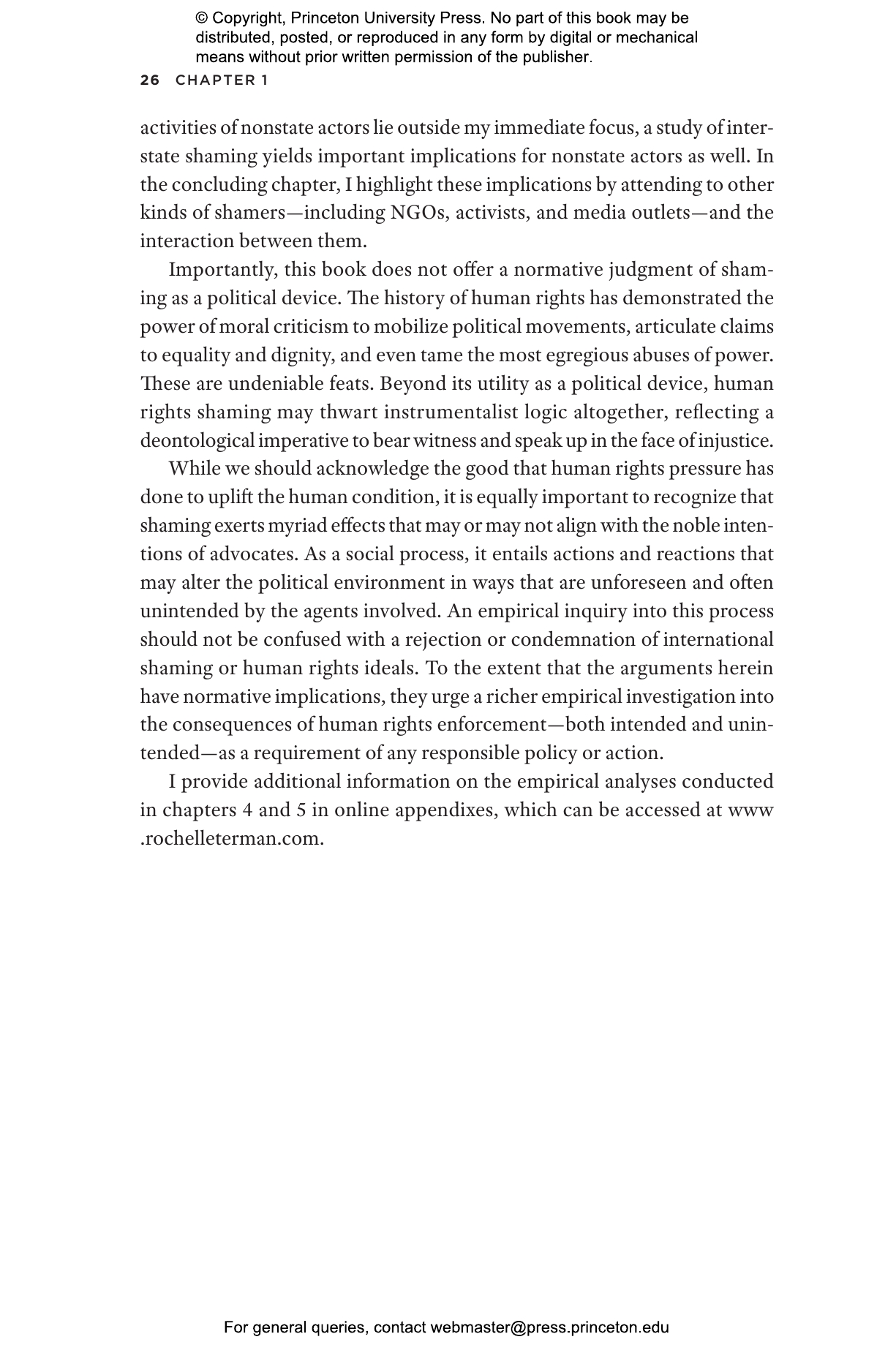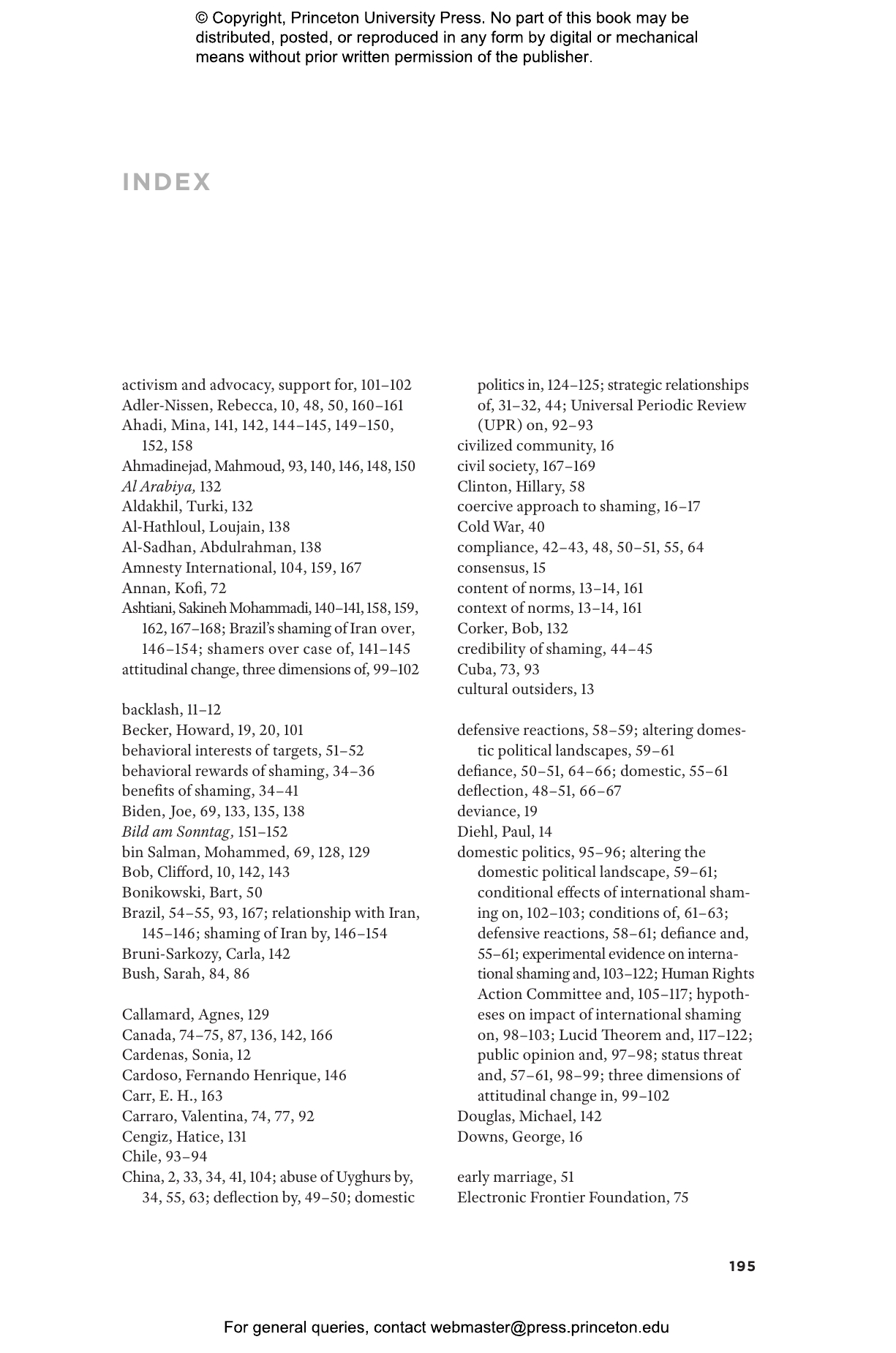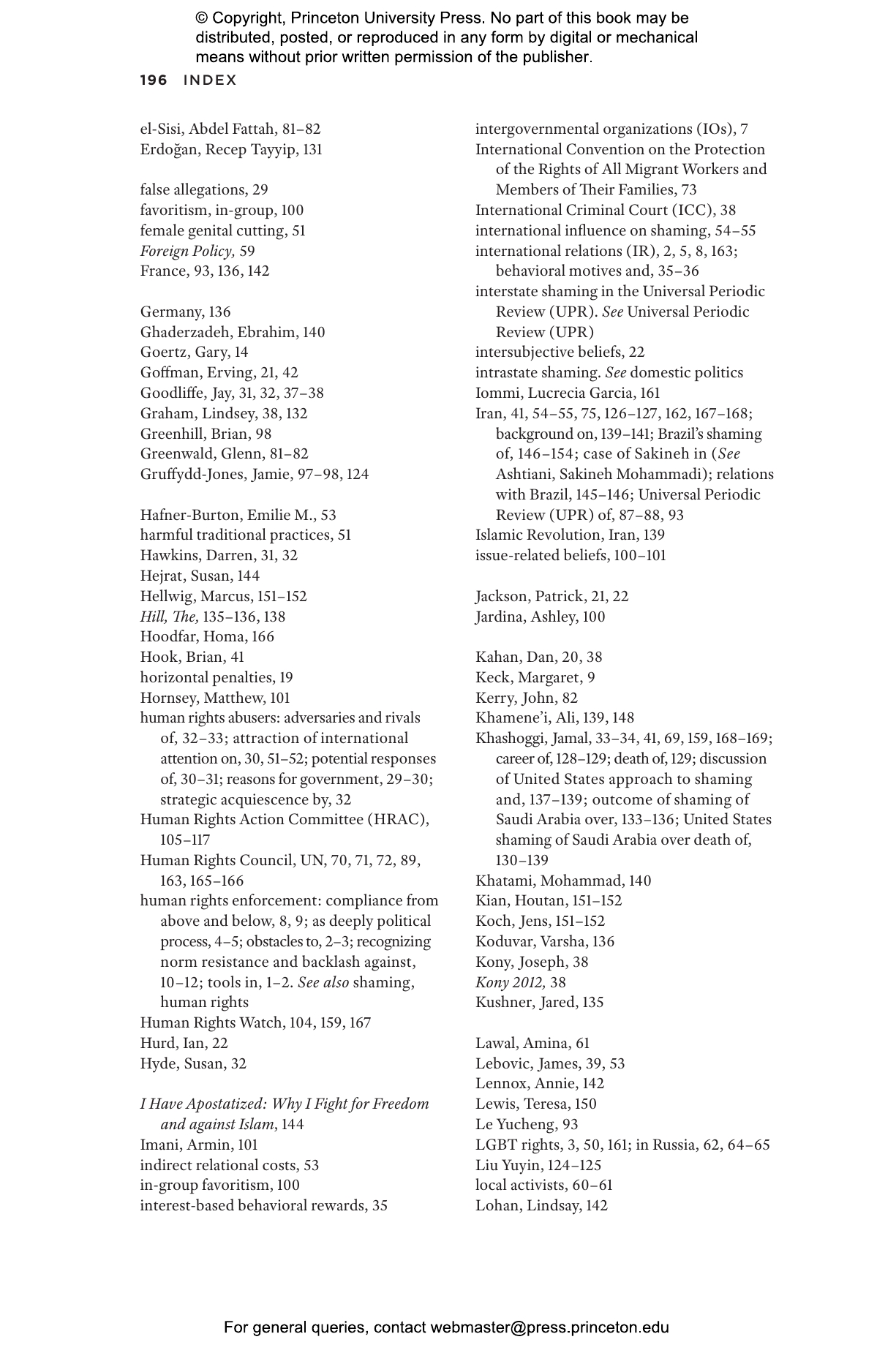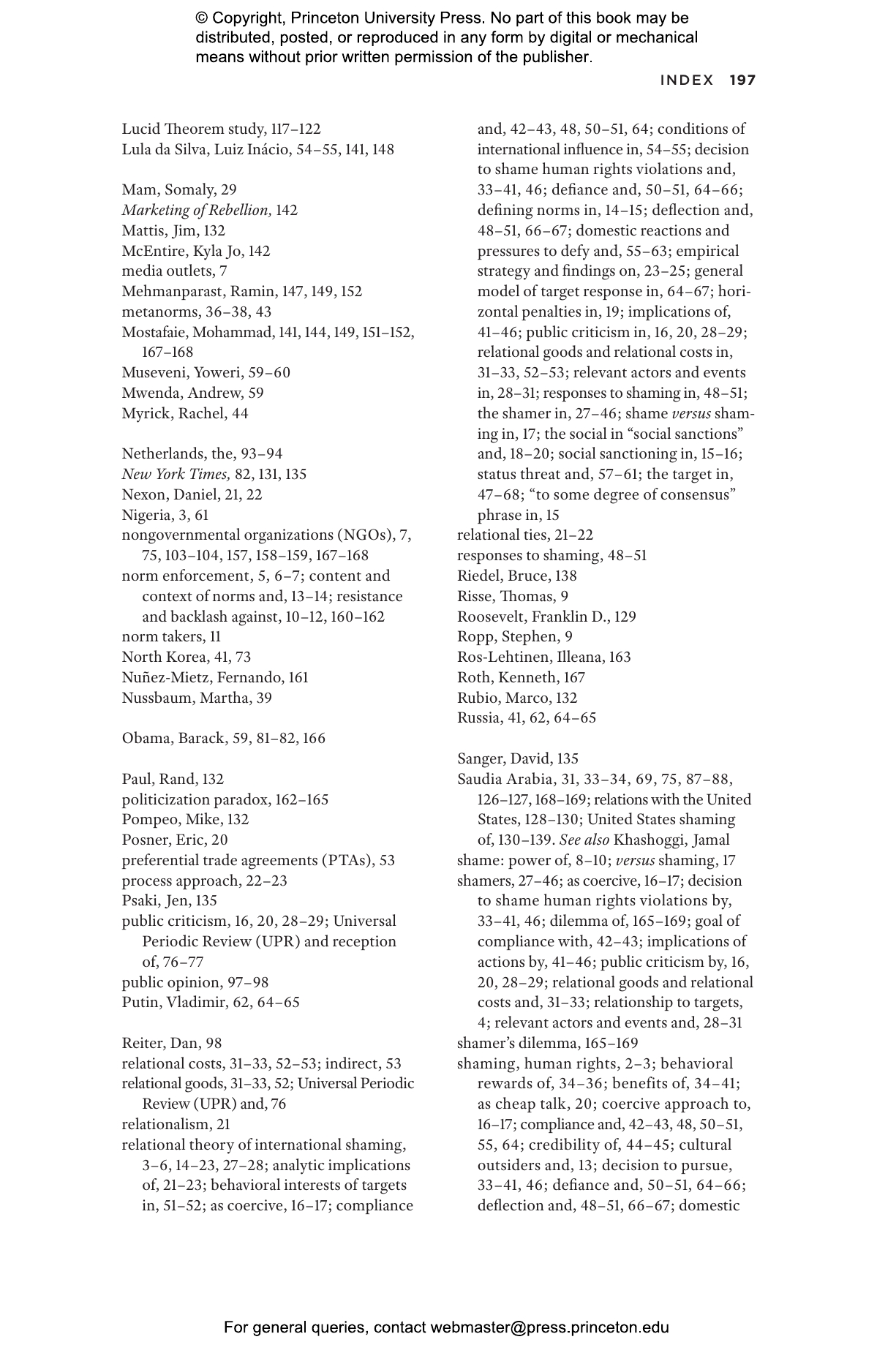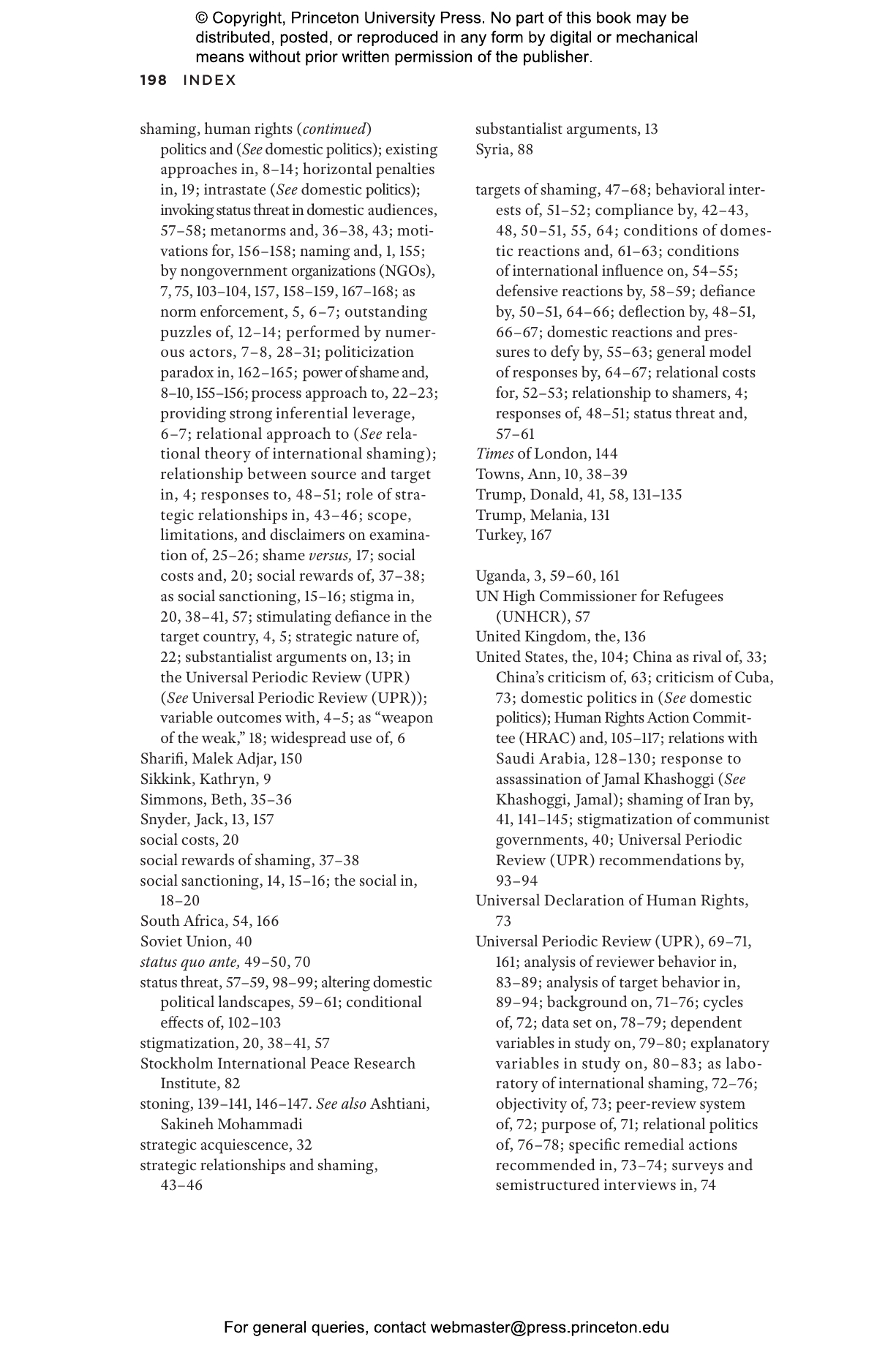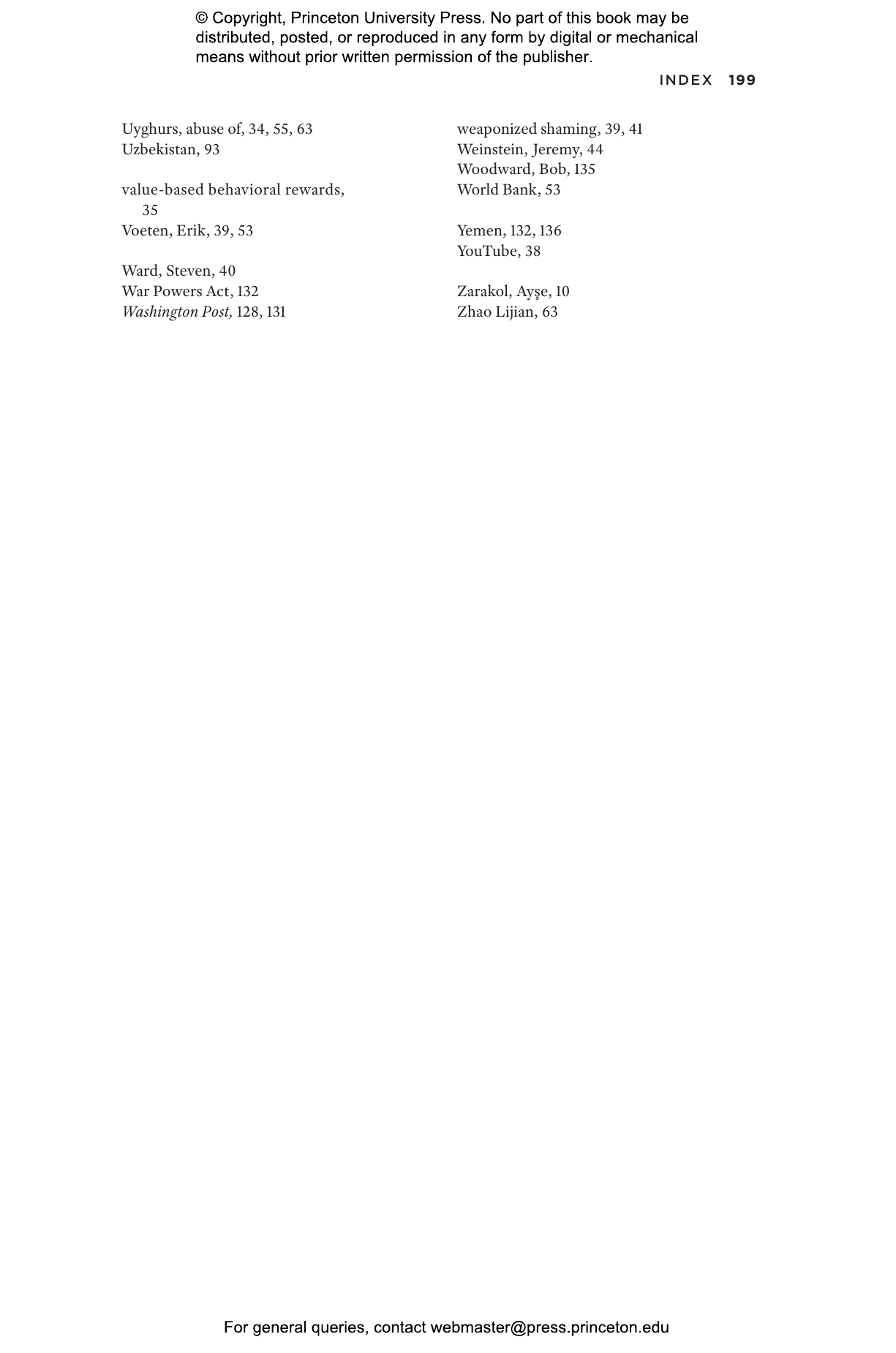When a government violates the rights of its citizens, the international community can respond by exerting moral pressure and urging reform. Yet many of the most egregious violations appear to go unpunished. In many cases, shaming not only fails to induce compliance but also incites a backlash, provoking resistance and worsening human rights practices. The Geopolitics of Shaming presents a new theory on the strategic logic of international human rights enforcement, revealing why and how states punish violations in other countries, when shaming leads to an improvement in human rights conditions, and when it backfires.
Drawing on a wide range of evidence—from large-scale cross-national data to original survey experiments and detailed case studies—Rochelle Terman shows how human rights shaming is a deeply political process, one that operates in and through strategic relationships. Arguing that preexisting geopolitical relationships condition both the causes and consequences of shaming in world politics, she shows how adversaries are quick to condemn human rights abuses but often provoke a counterproductive response, while friends and allies are the most effective shamers but can be reluctant to impose meaningful sanctions.
Upending conventional wisdom on the role of norms in world affairs, The Geopolitics of Shaming demonstrates that politicization is integral to—not a corruption of—the success of the global human rights project.
Awards and Recognition
- Winner of the Best Book Award, International Collaboration Section of the American Political Science Association
- Winner of the Theodore J. Lowi First Book Award, American Political Science Association
- Winner of the Best Book Award, Foreign Policy Section of the American Political Science Association
- Winner of the Lepgold Prize, Georgetown University
"Terman breaks important ground in illuminating when, how, and under what conditions states engage in ‘naming and shaming’ other countries to punish them for human rights transgressions . . . [She] does not deny the importance of upholding human rights standards, but she does demonstrate quite elegantly that politics and state interests lurk at every turn."—G. John Ikenberry, Foreign Affairs
"Rochelle Terman establishes a new theoretical approach to examine when shaming improves human rights conditions, when it is ineffective and when it is counterproductive. . . . An invaluable contribution."—Serena Clark, International Affairs
"A solid basis in which to interrogate shaming and think through its impacts – [The Geopolitics of Shaming] is thus a necessary read for policymakers and activists alike."—Usman Butt, Middle East Monitor
"[The Geopolitics of Shaming] challenges conventional wisdom on the role of norms in world affairs and demonstrates that politicization is integral to the success of the global human rights project. . . . For human rights promoters, this study provides a warning on the potential risks of shaming. The key insight is that, when it comes to enforcing human rights, the critic matters as much as (and perhaps more than) the criticism."—Zheng Chen, China International Strategy Review
"A valuable contribution to our understanding of human rights enforcement in the international arena."—Brett J. Kyle, International Dialogue
“Placing human rights shaming in strategic context allows Terman to explore, not just happy stories of compliance, but also logics of backlash, resistance, and hypocrisy in human rights promotion. This smart and provocative marriage of geopolitics with norm promotion has broad implications beyond human rights.”—Martha Finnemore, George Washington University
“Why do governments shame certain states about human rights violations but ignore other abusers? When does shaming work? Rochelle Terman’s relational approach reveals the possibilities but also the significant geopolitical limits of this widely revered tactic. Her nuanced book makes a significant contribution to a realistic account of human rights.”—Clifford Bob, Duquesne University and author of Rights as Weapons: Instruments of Conflict, Tools of Power
“This insightful book addresses the important and timely debate about whether shaming strategies are effective in bringing about changes in human rights practices. Terman makes the crucial point that, in order to better understand the politics of shaming, we need to think about the relationship between who is doing the shaming and who is being shamed.”—Brian Greenhill, author of Transmitting Rights: International Organizations and the Diffusion of Human Rights Practices
“Rochelle Terman exposes the risks and opportunities of shaming as a means of enforcing international human rights. She provides convincing evidence that shaming’s consequences depend on relationships. Friends may feel peer pressure to respond while adversaries are likely as not to lash back. Terman’s book should be read by anyone who cares about the future of human rights.”—Beth A. Simmons, author of Mobilizing for Human Rights: International Law in Domestic Politics
“The Geopolitics of Shaming is one of the must-read books of this year. Rochelle Terman greatly advances our understanding of a fundamental but woefully understudied dynamic of international politics: shaming. Terman compellingly argues that shaming is best thought of relationally, as a strategic interaction between actors. International relations scholars of any background will find something worthwhile here.”—Ayşe Zarakol, University of Cambridge
